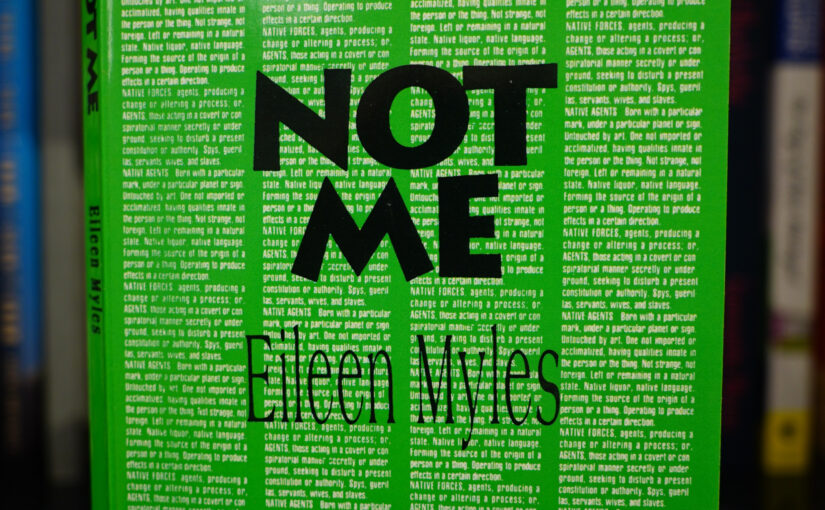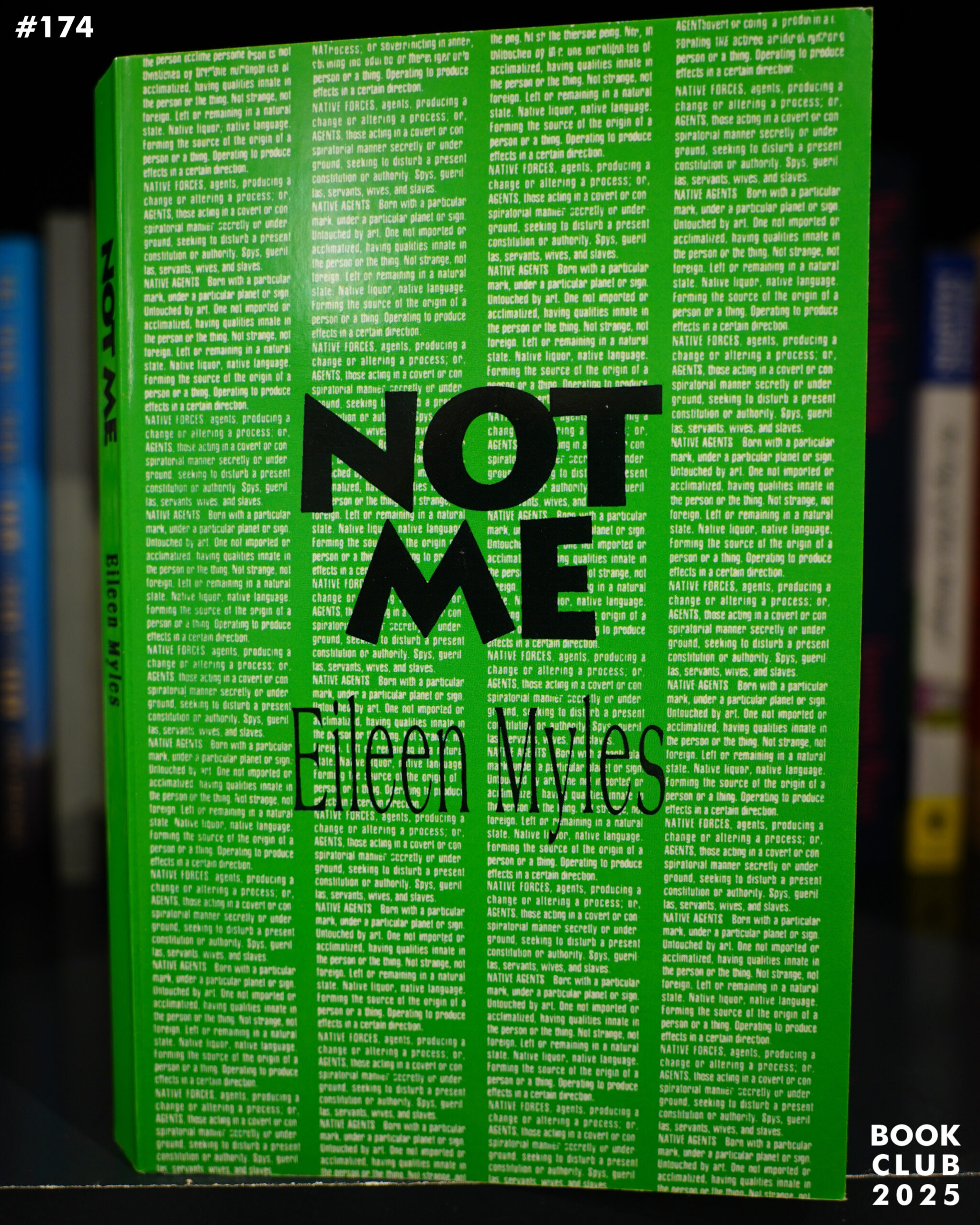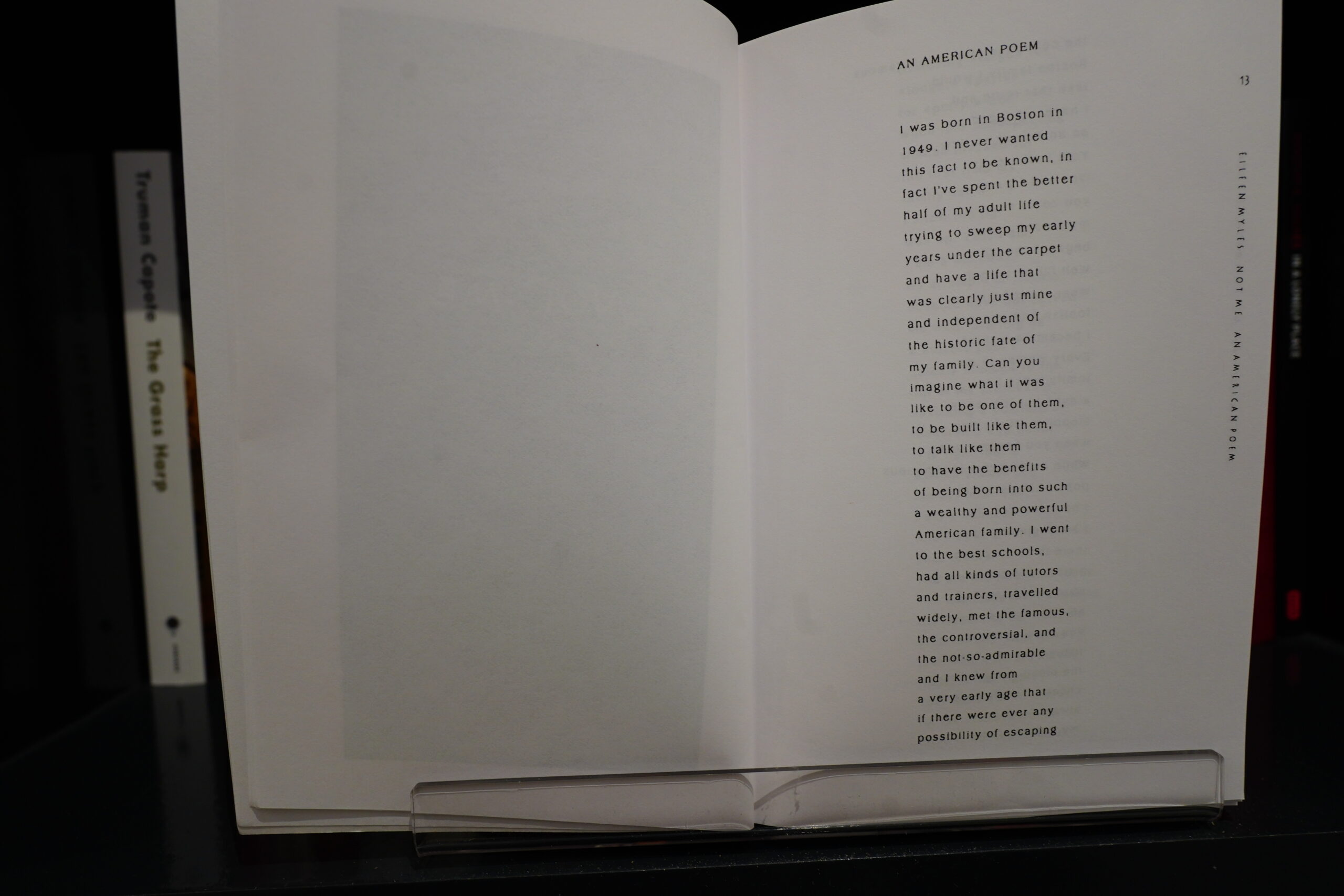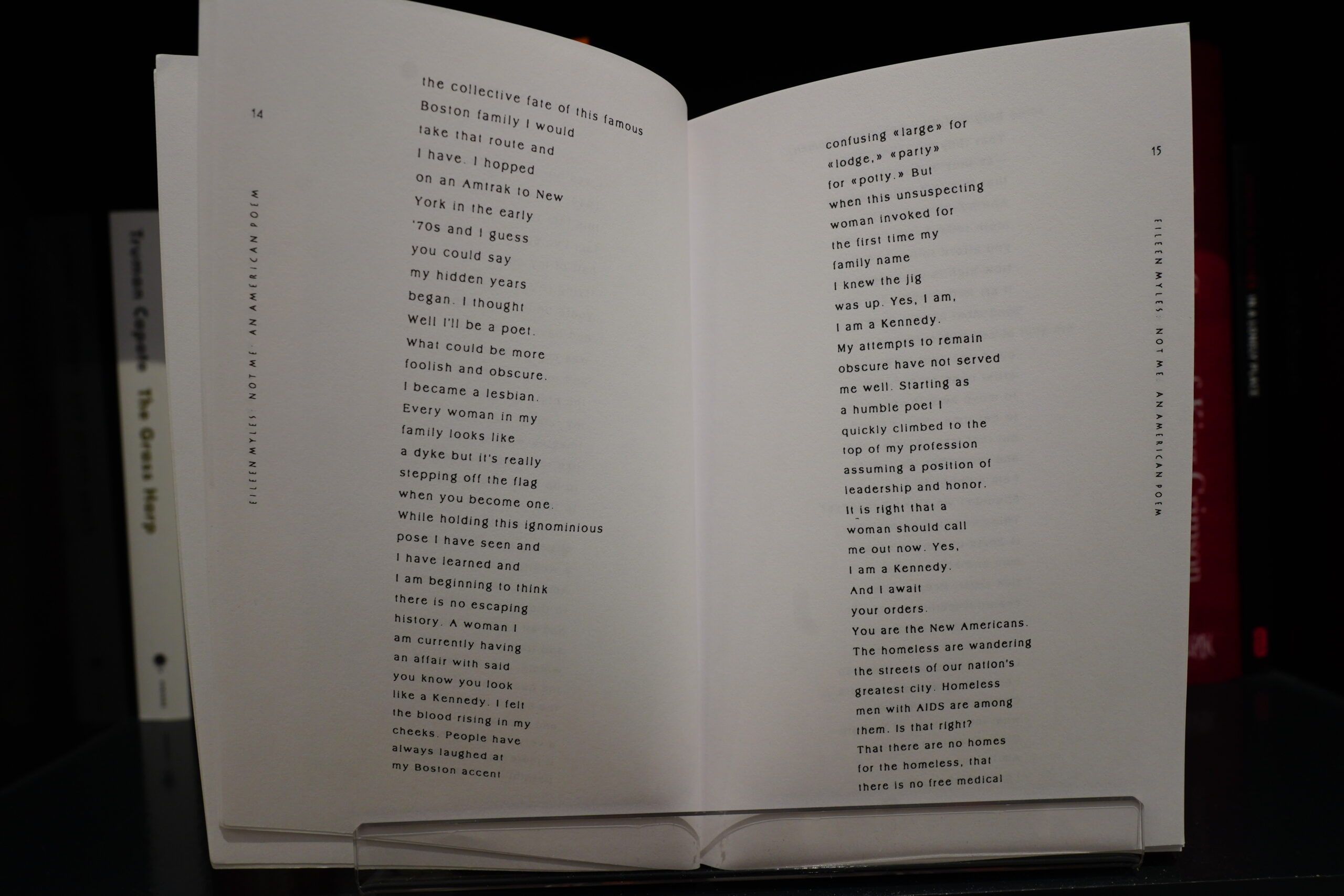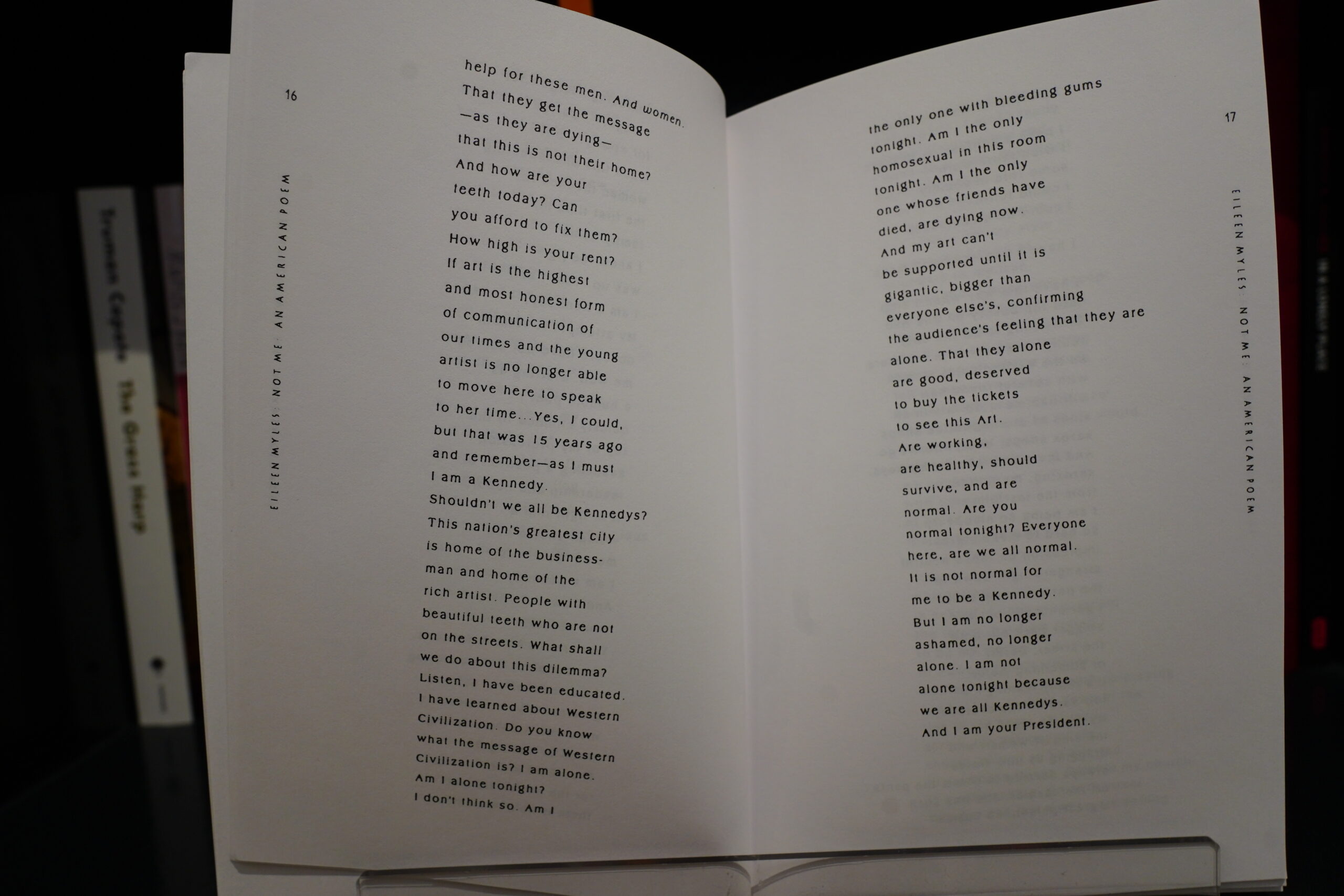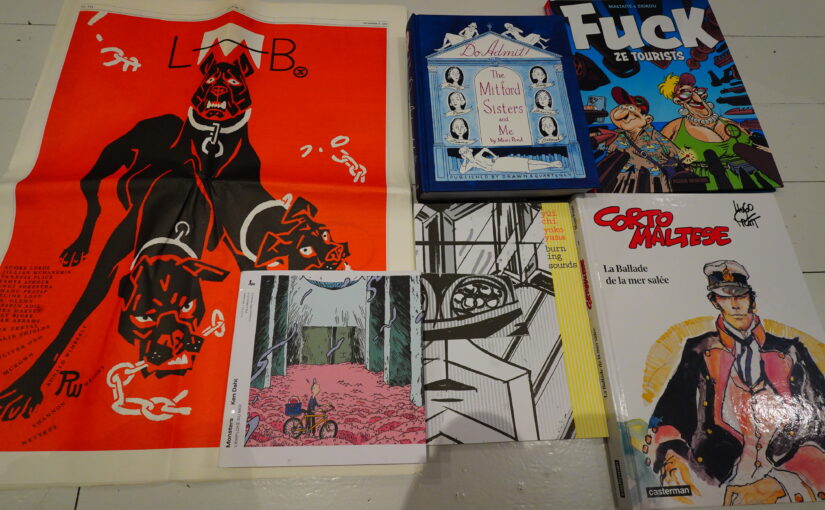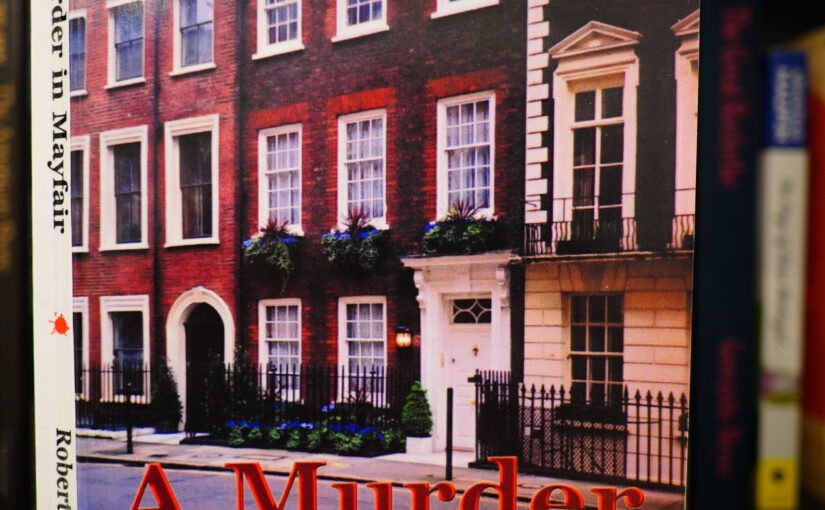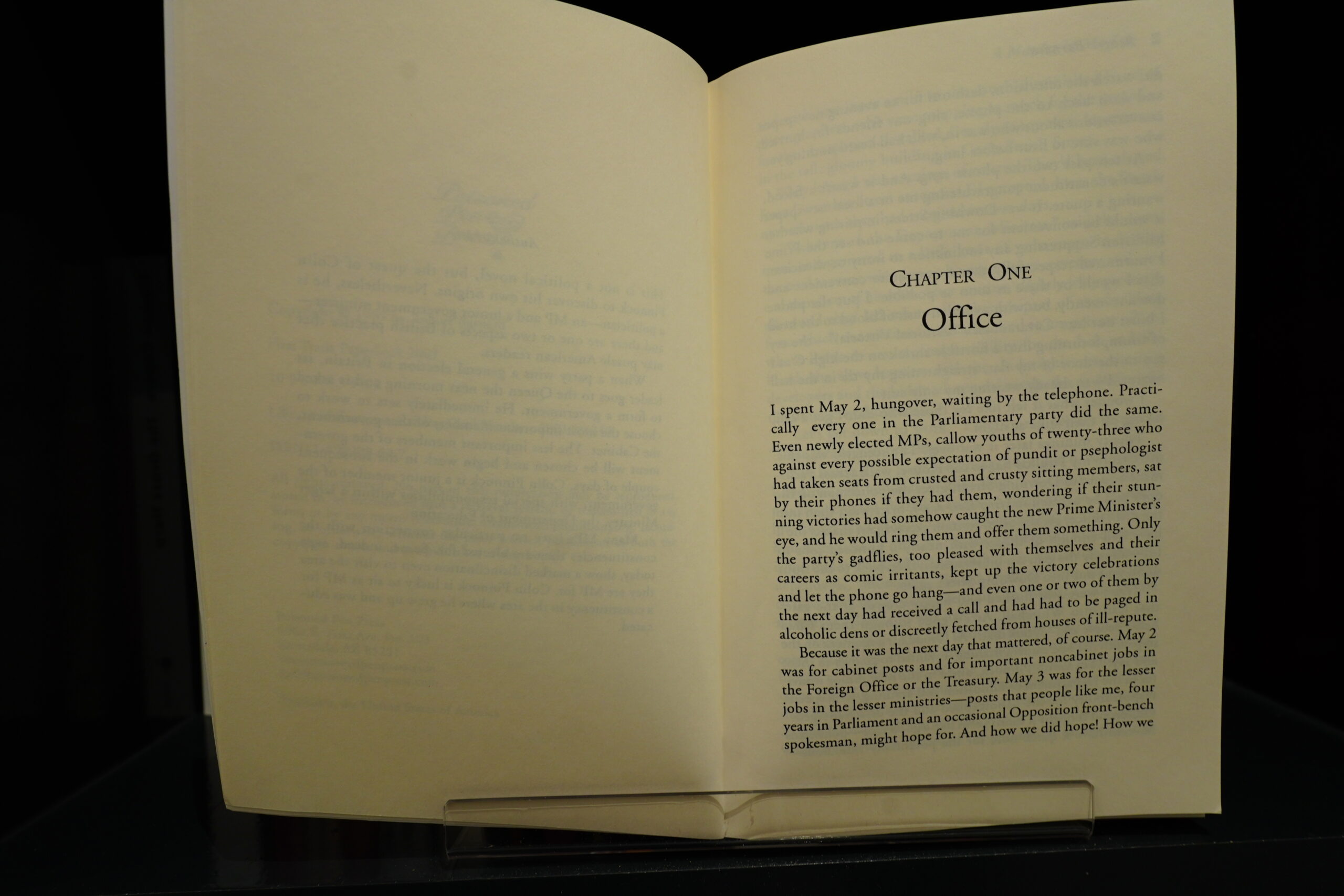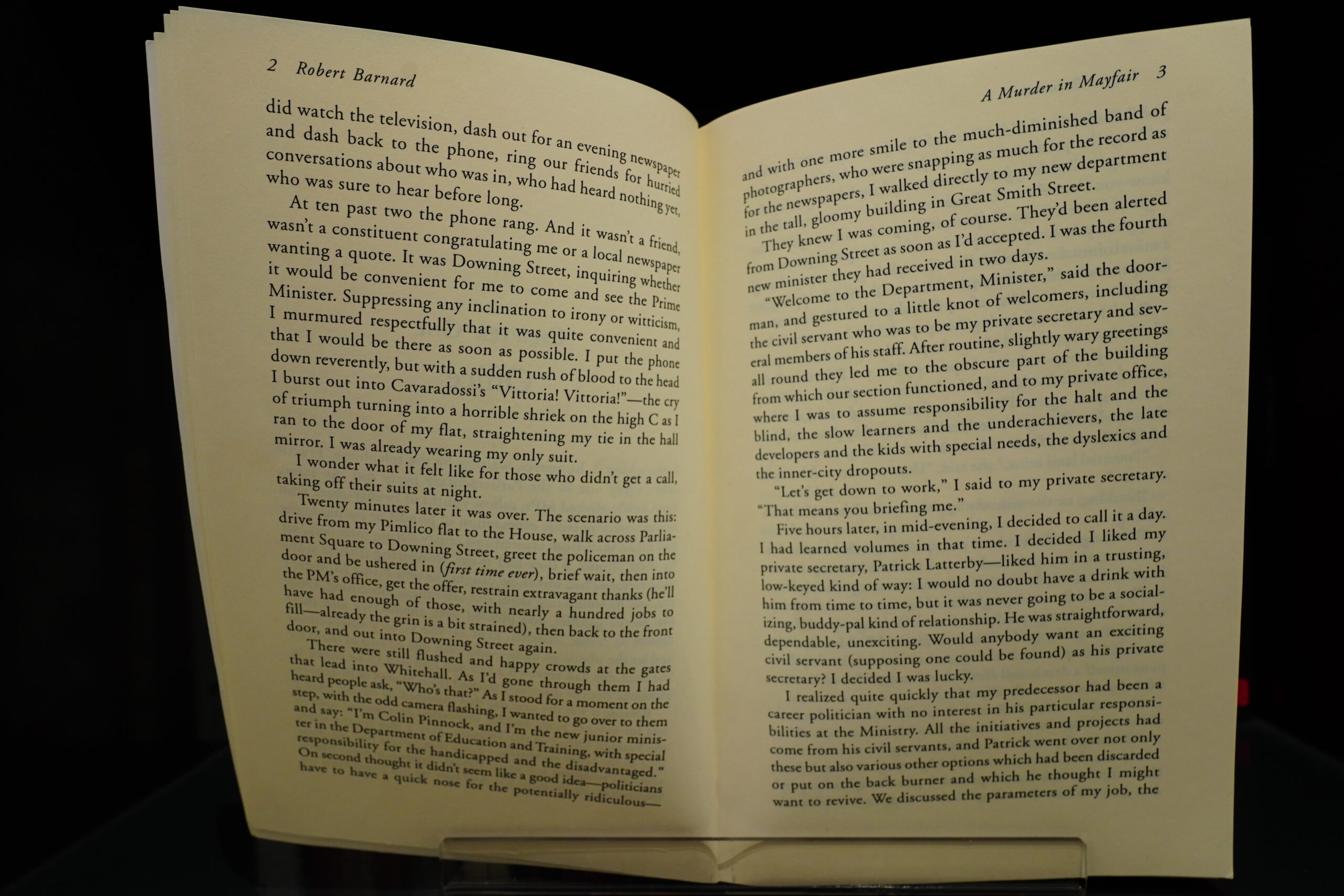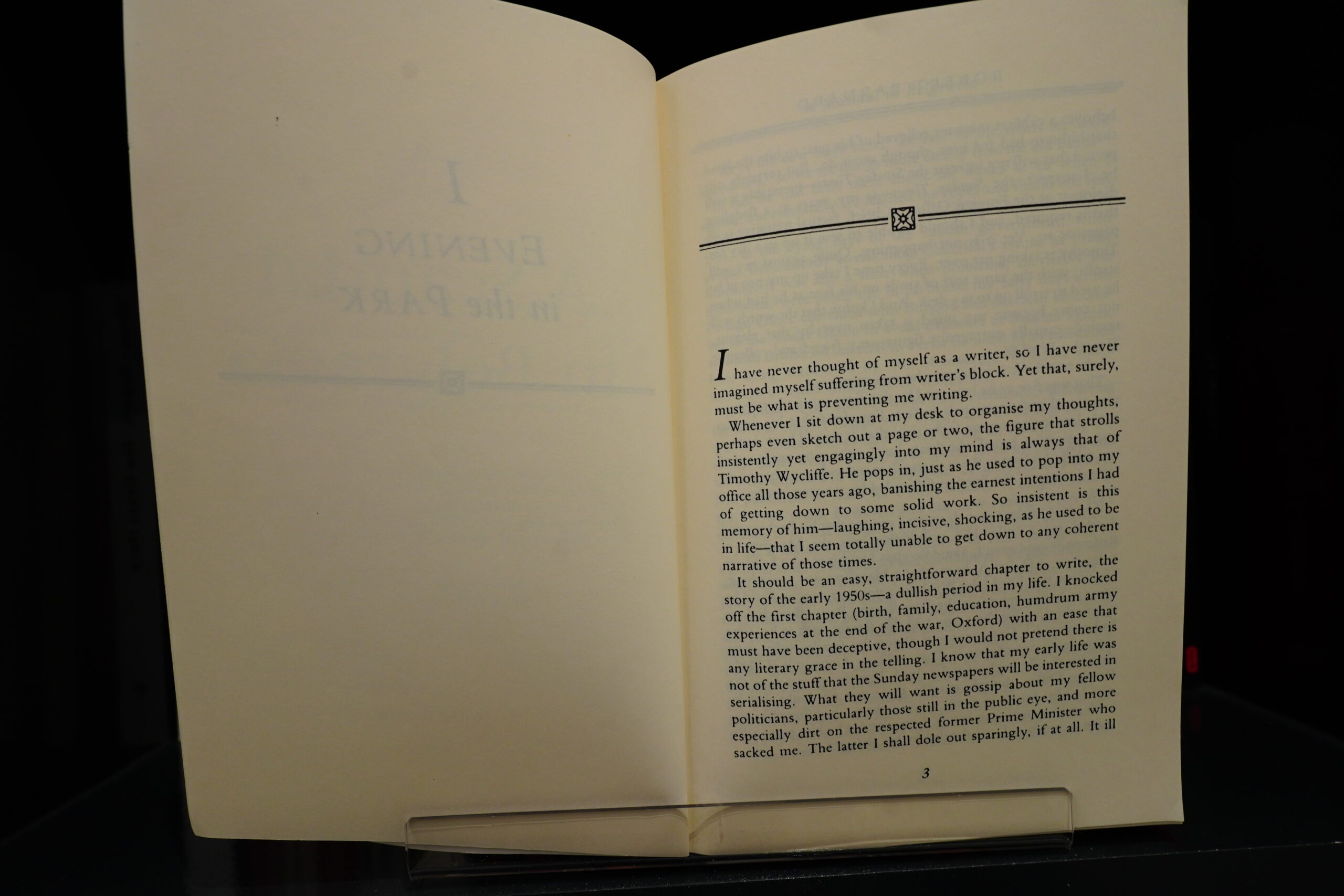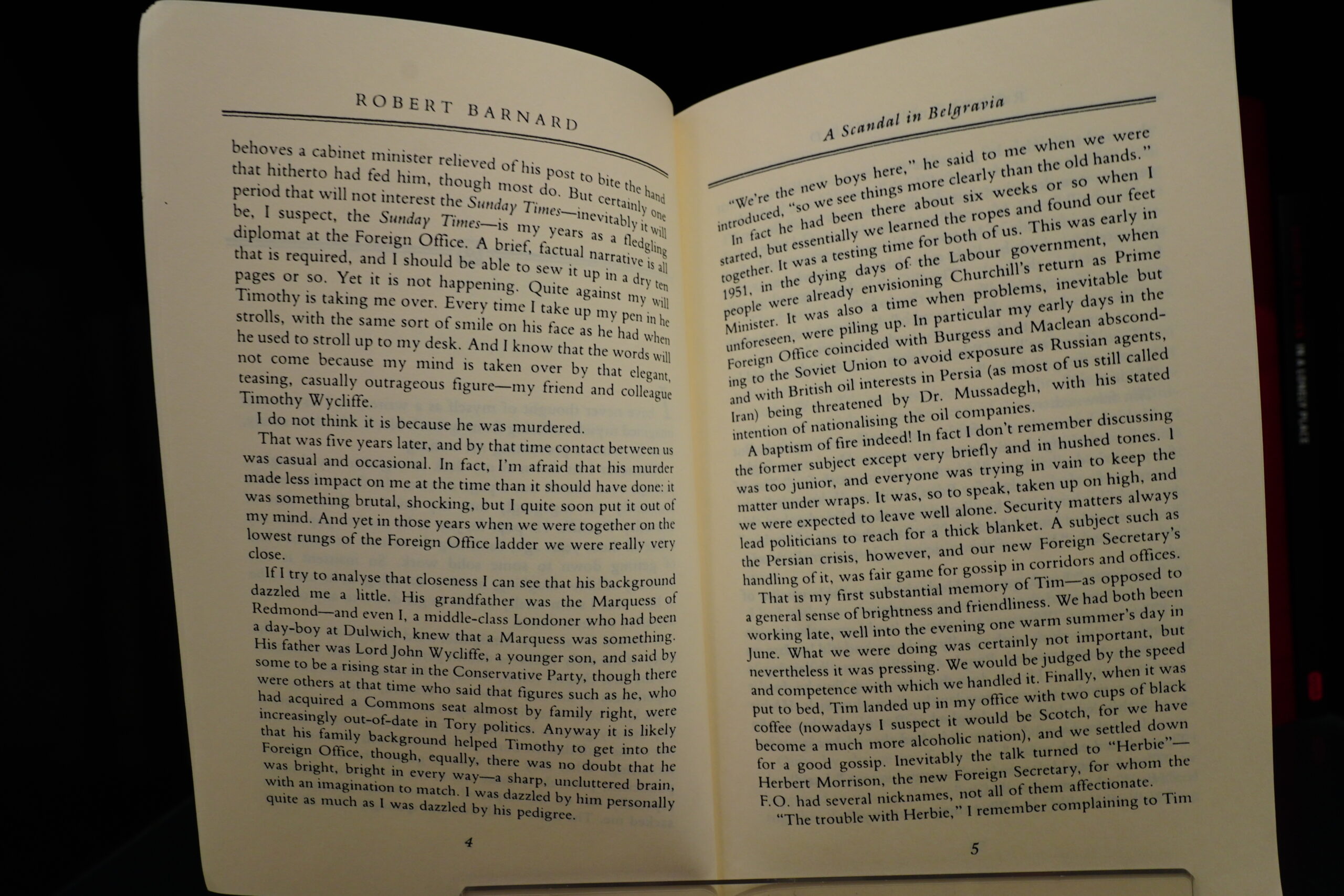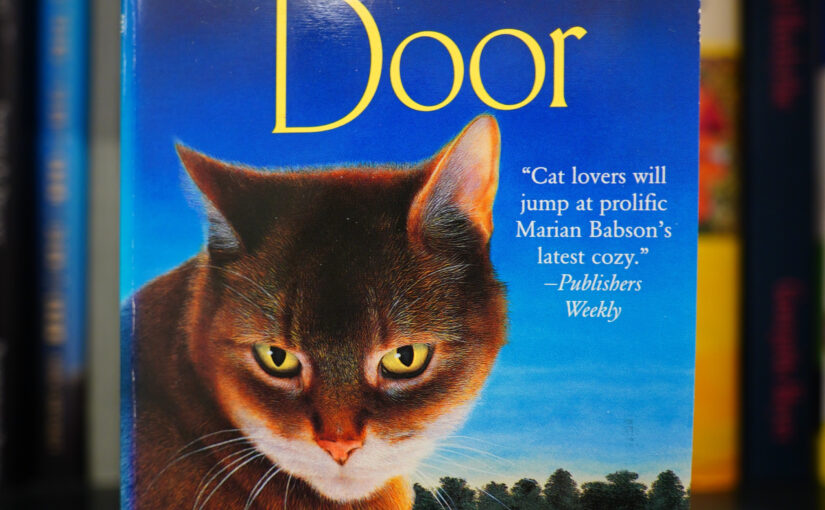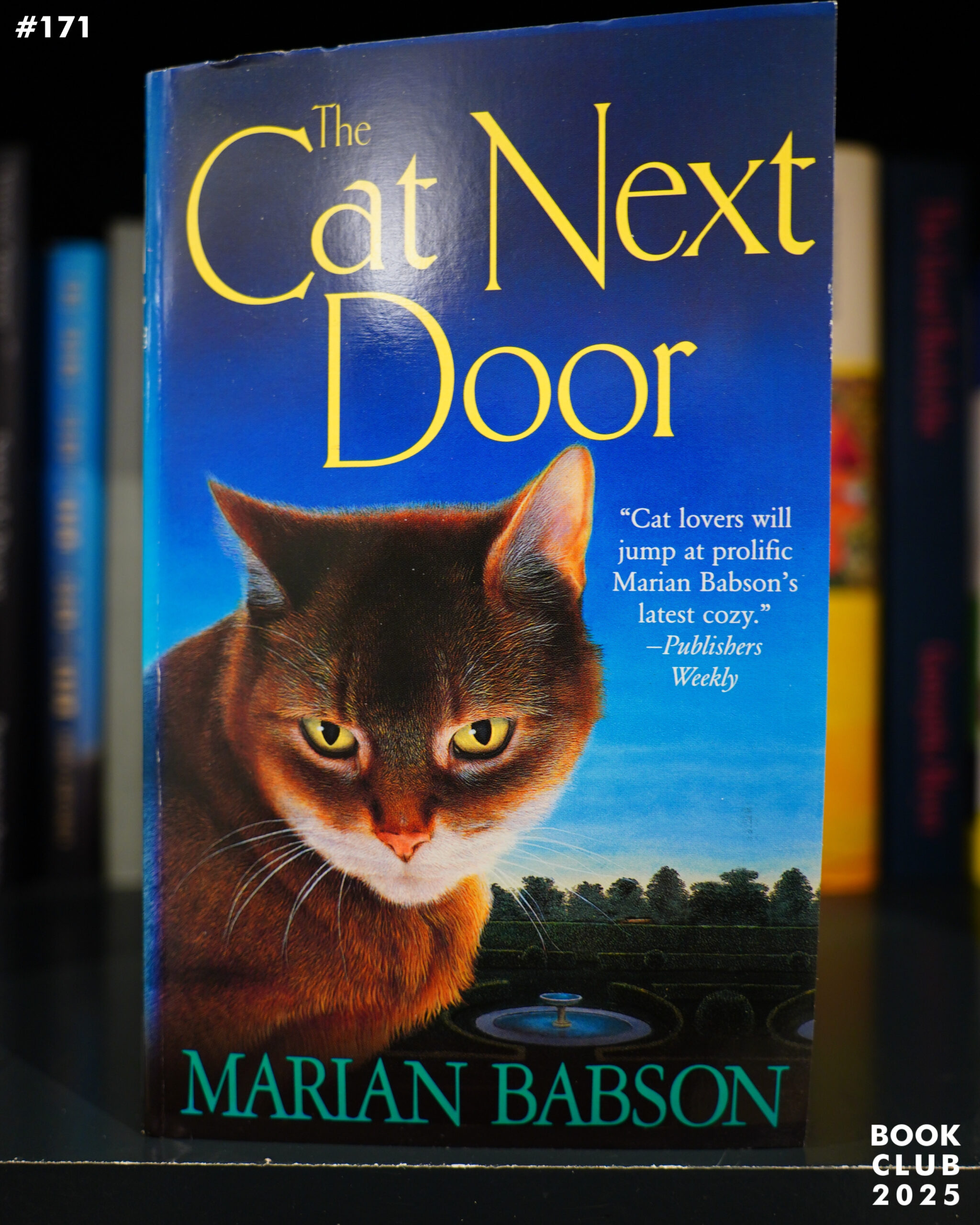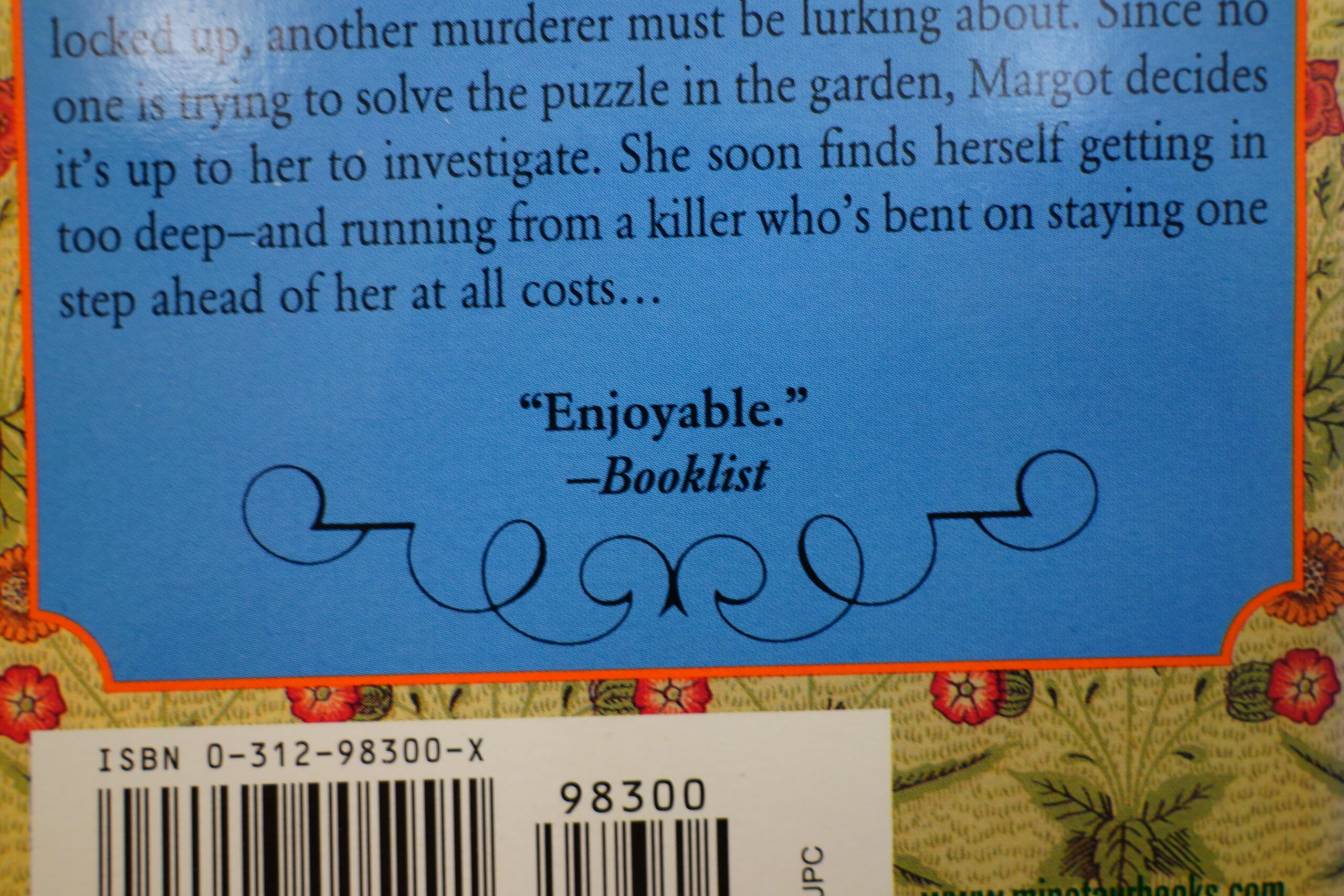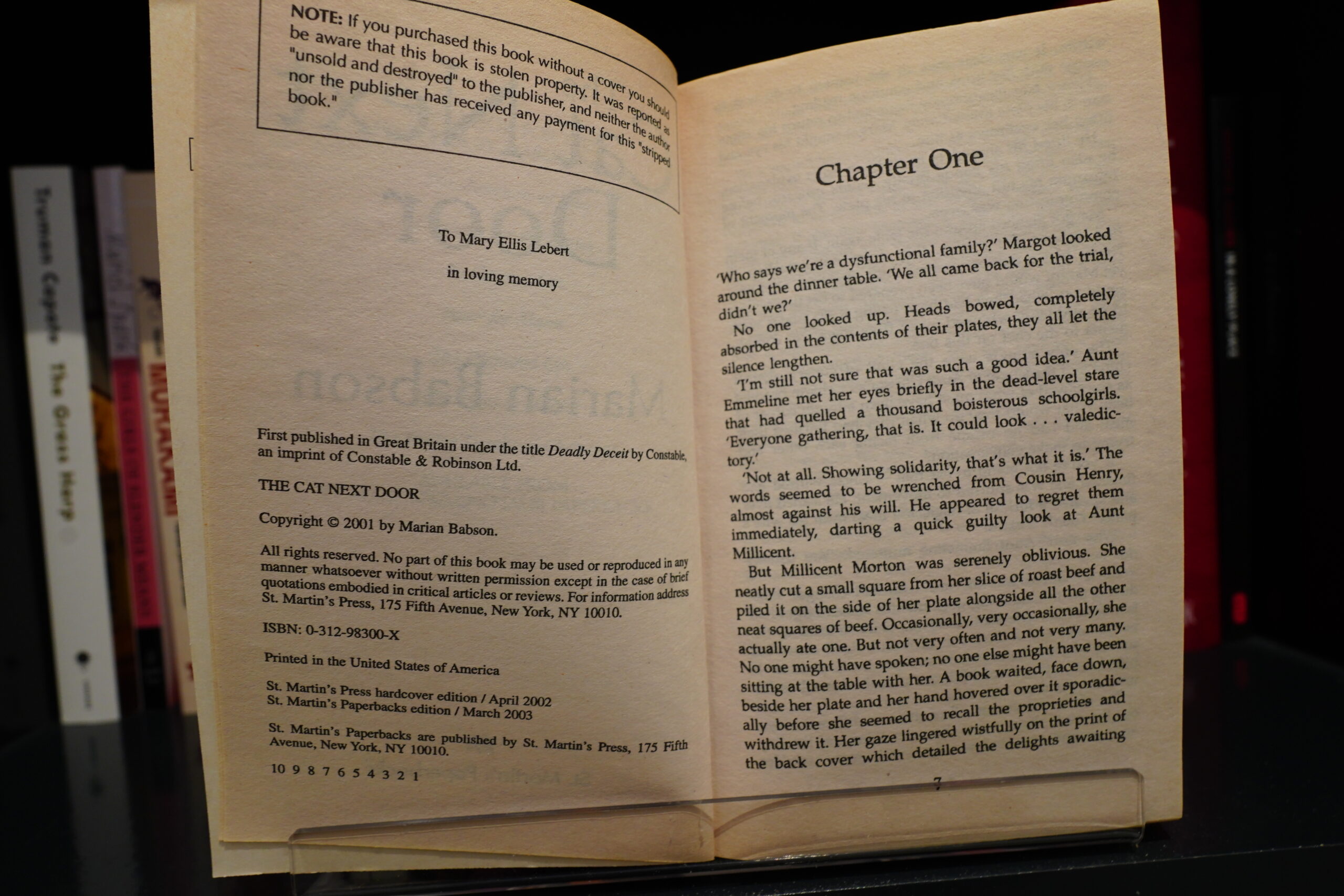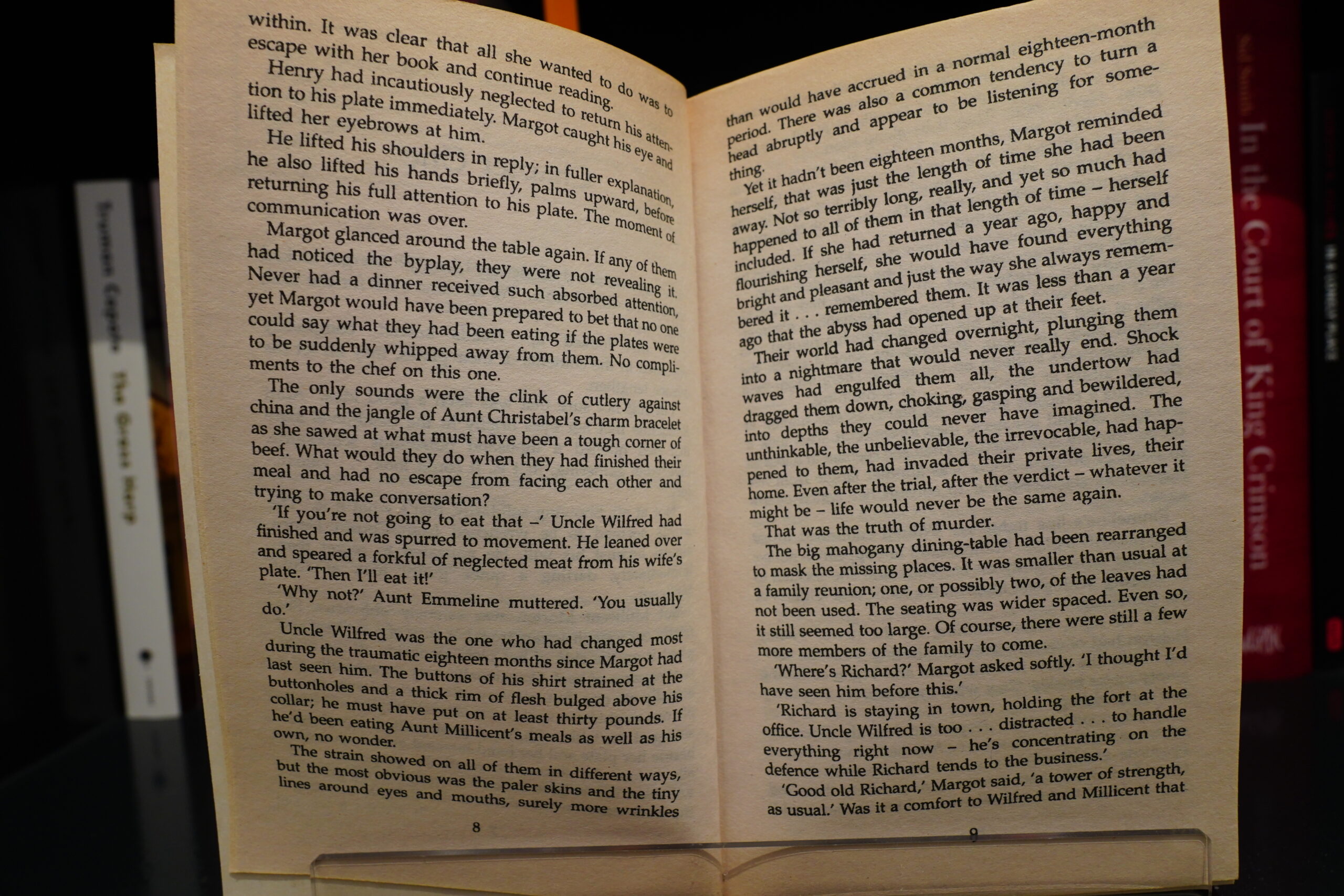
Here’s some comics I’ve read over the past… three weeks? Yes, I’ve really been slacking on my comics reading.
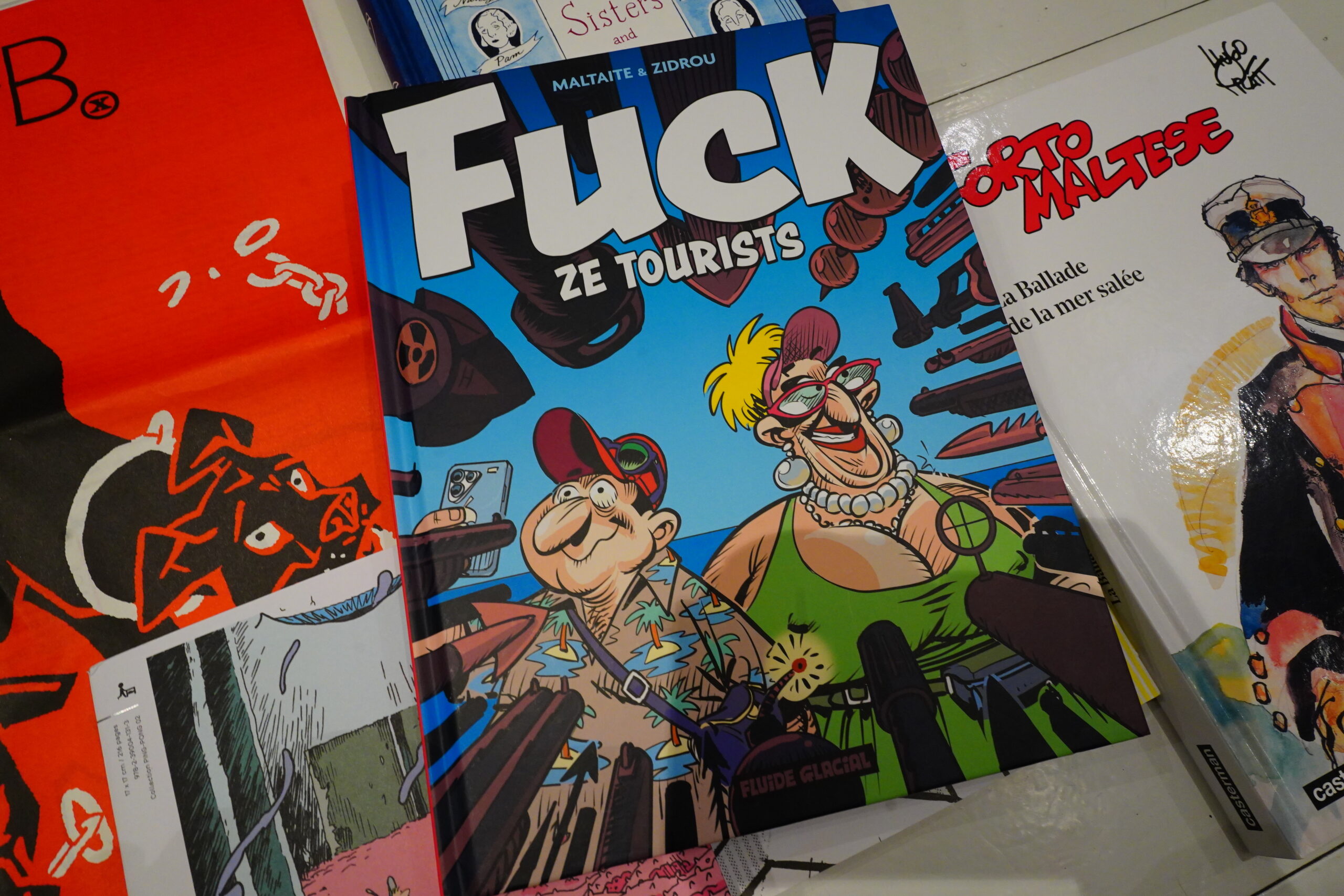
I’m learning French, so I’ve been buying masses of French comics… and then not actually reading them, because it’s hard. But I thought I should get my fesses in a gear and just get into it.
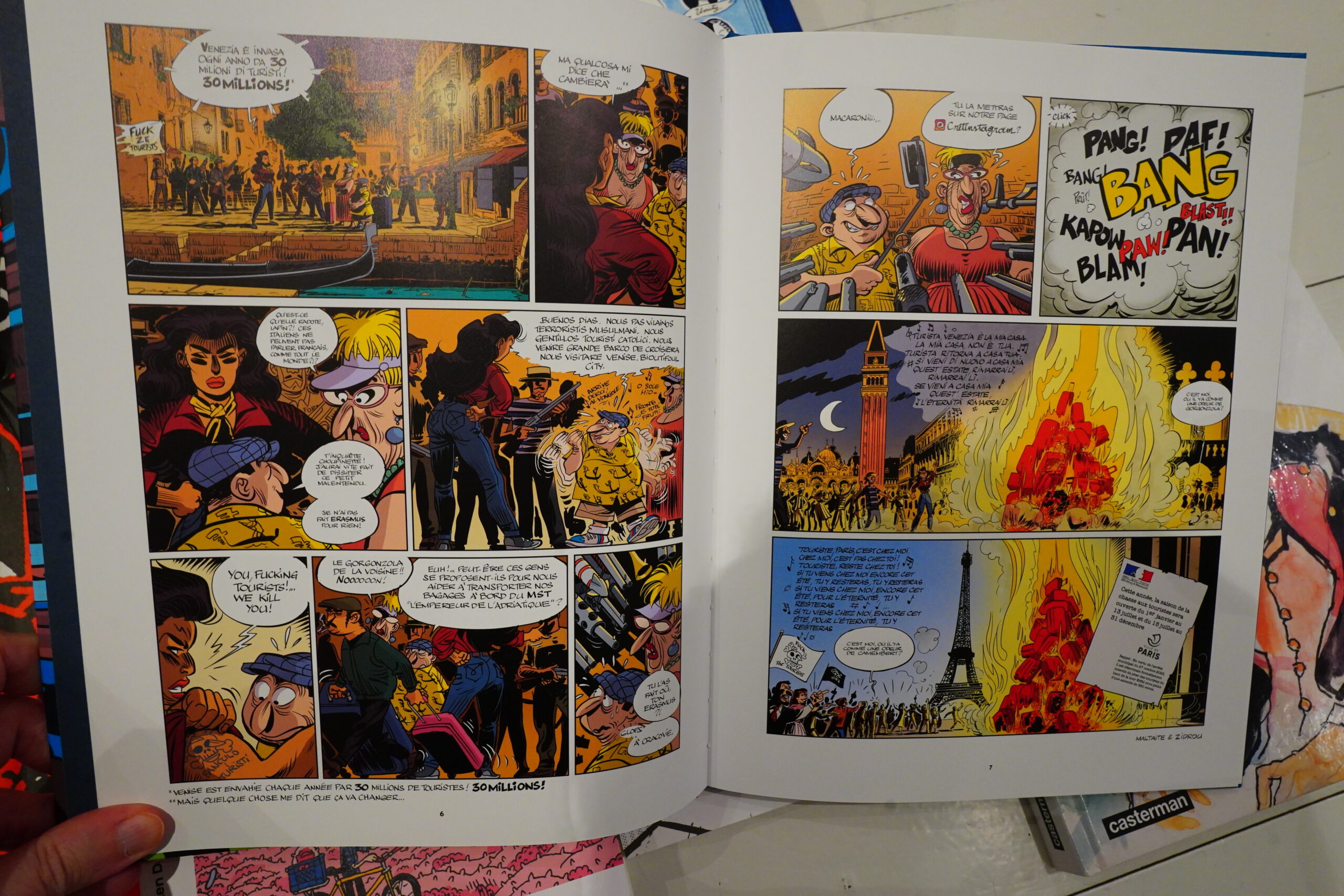
Fuck ze tourists by Maltaite & Zidrou is a pretty amusing look at mass tourism. It’s a collection of mostly three page storylets (featuring recurring tourists), and while it’s not exactly well-observed, it’s funny.
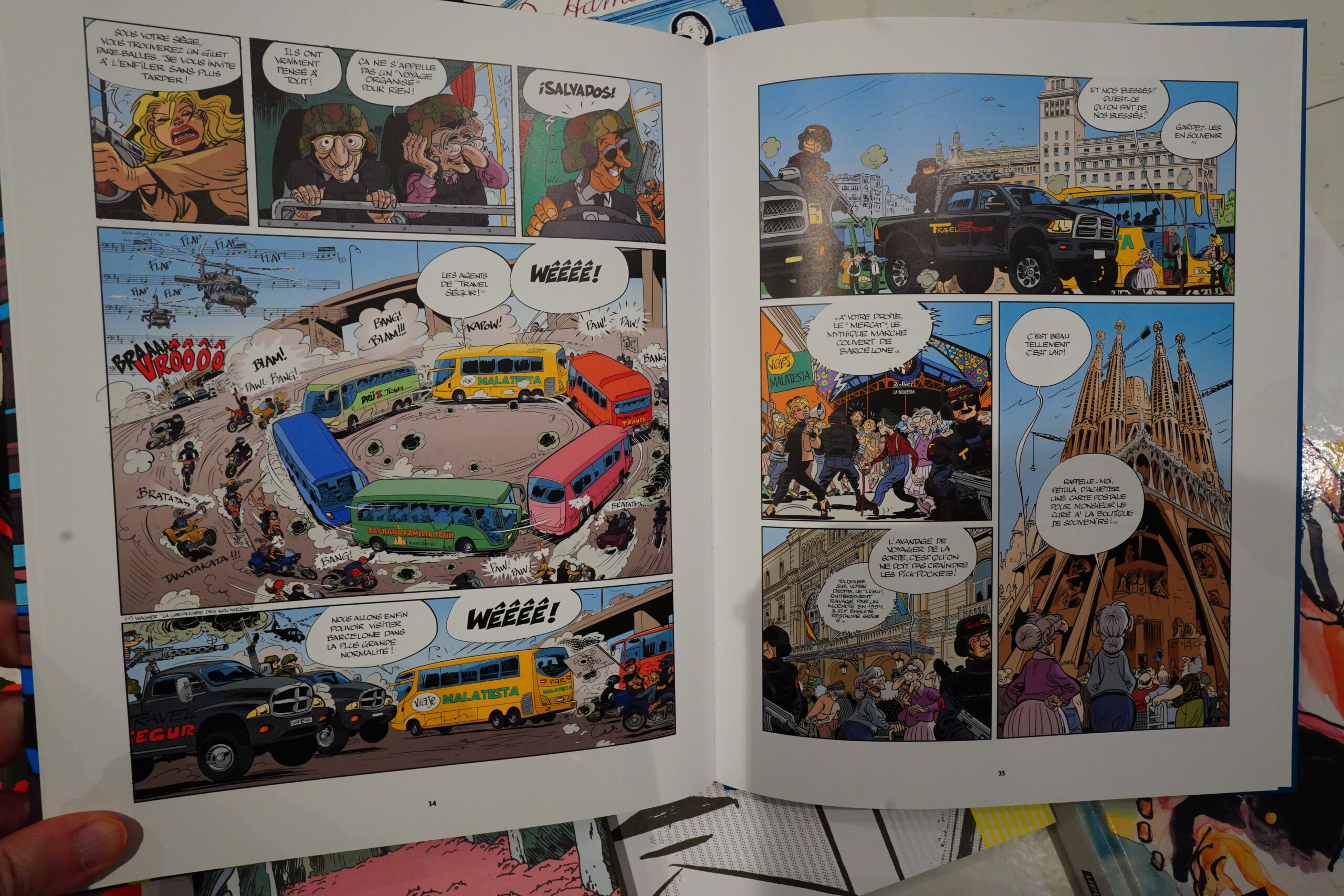
Here’s what tourism in Barcelona will look like in years to come, for instance. Seems likely.
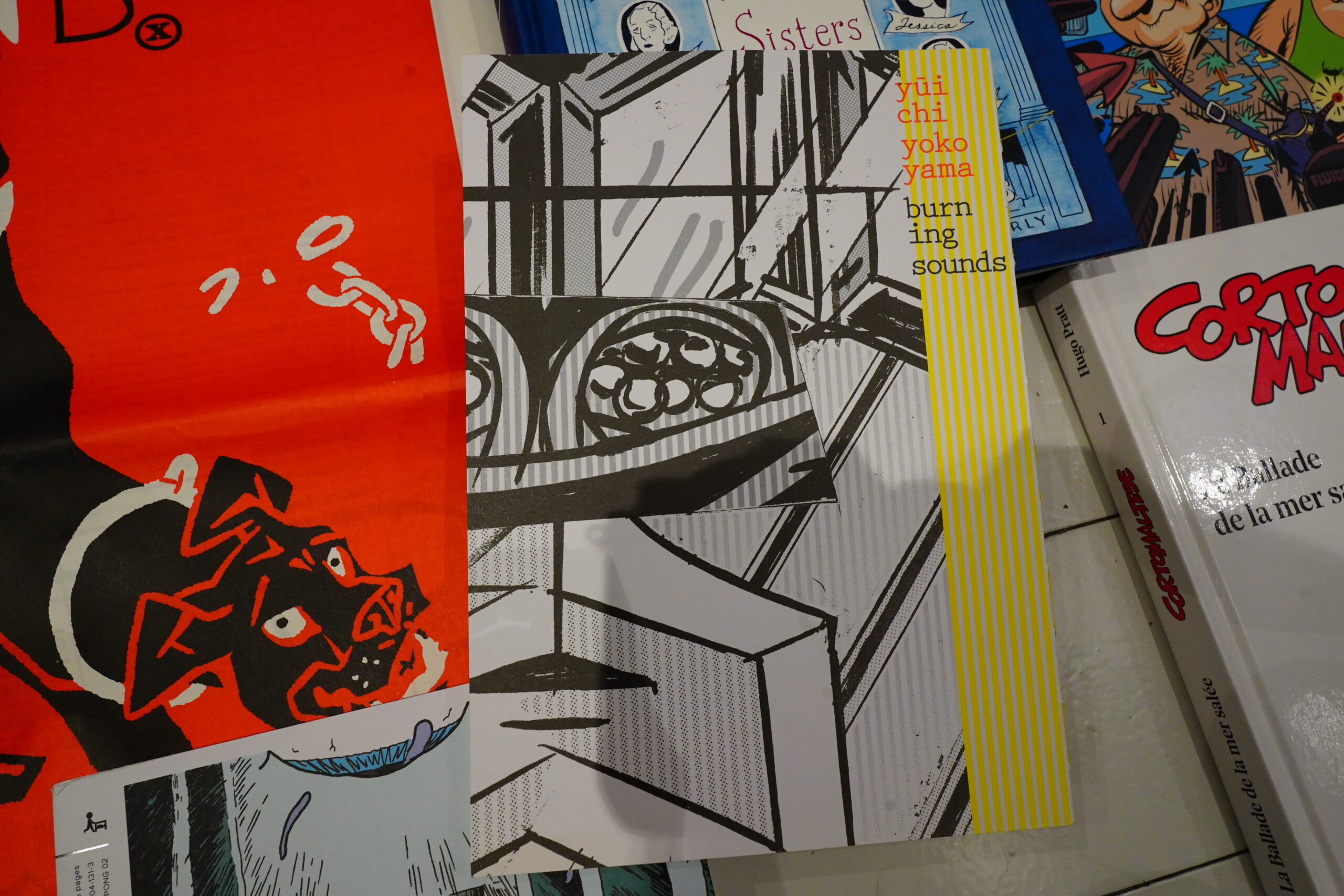
This Yuichi Yokoyama book is fantastic — as a physical object, it’s just perfect.
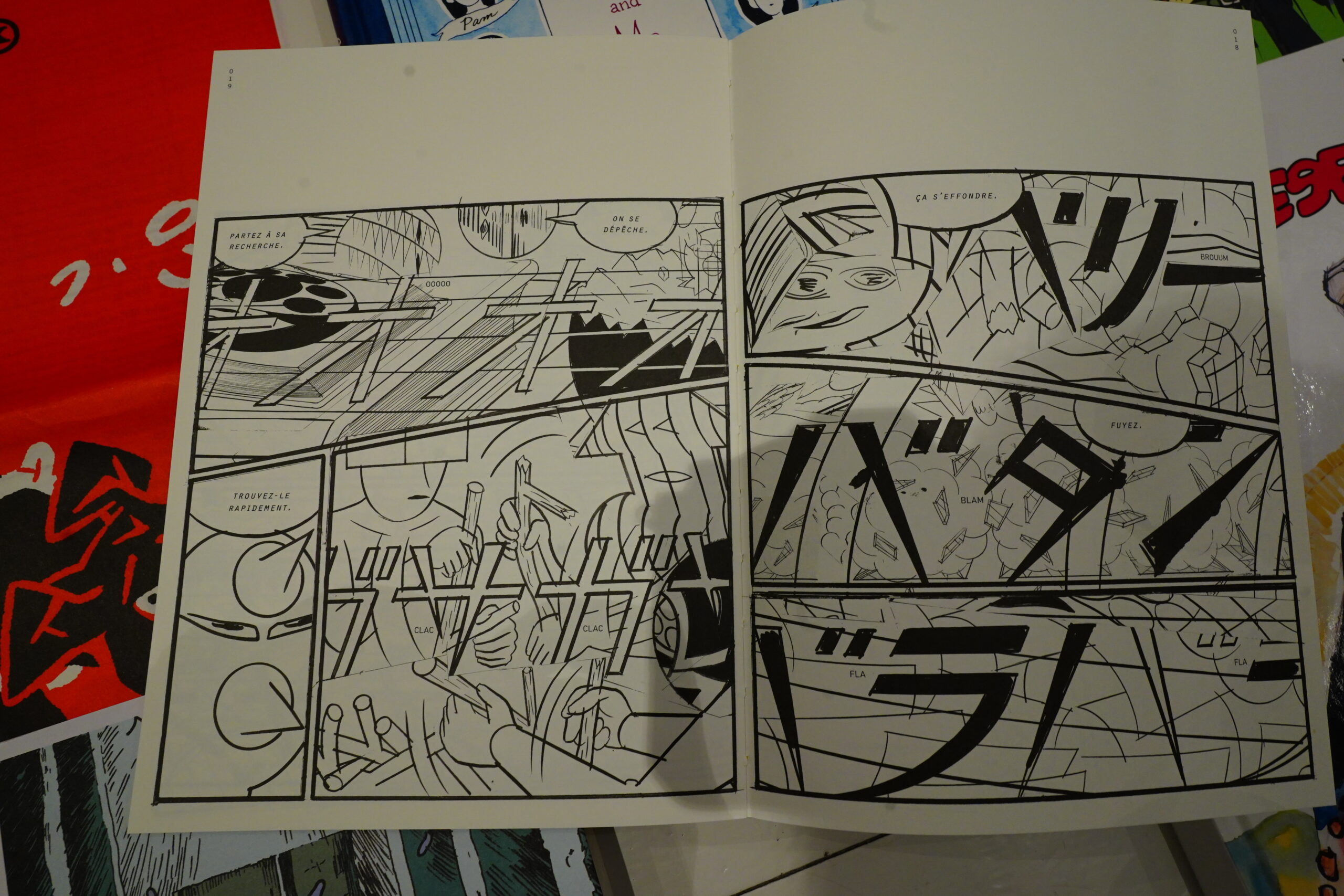
As usual, it’s totally propulsive and engrossing.
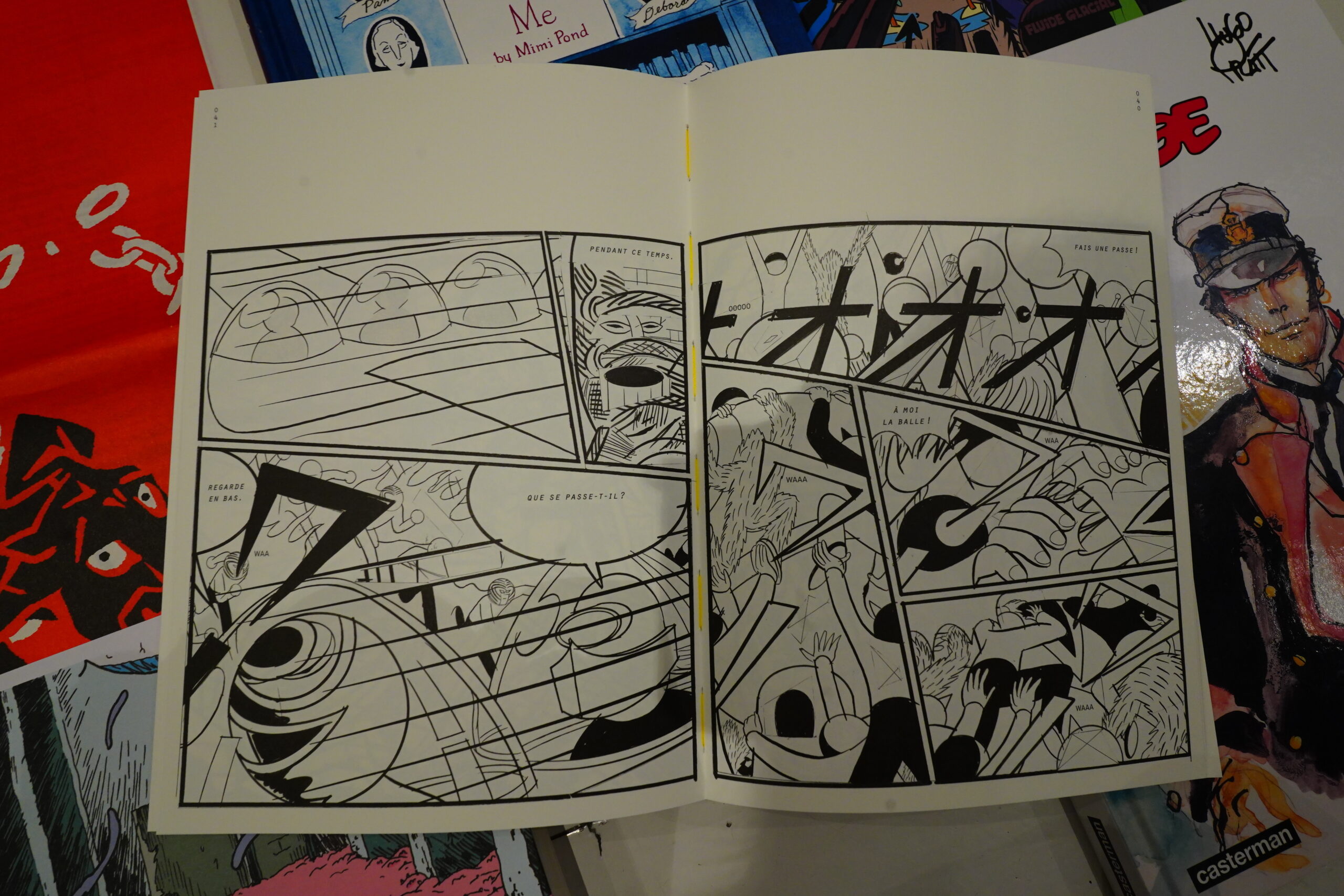
It’s a collection of short vignettes, though, so there not that development… but it’s still exhilarating.
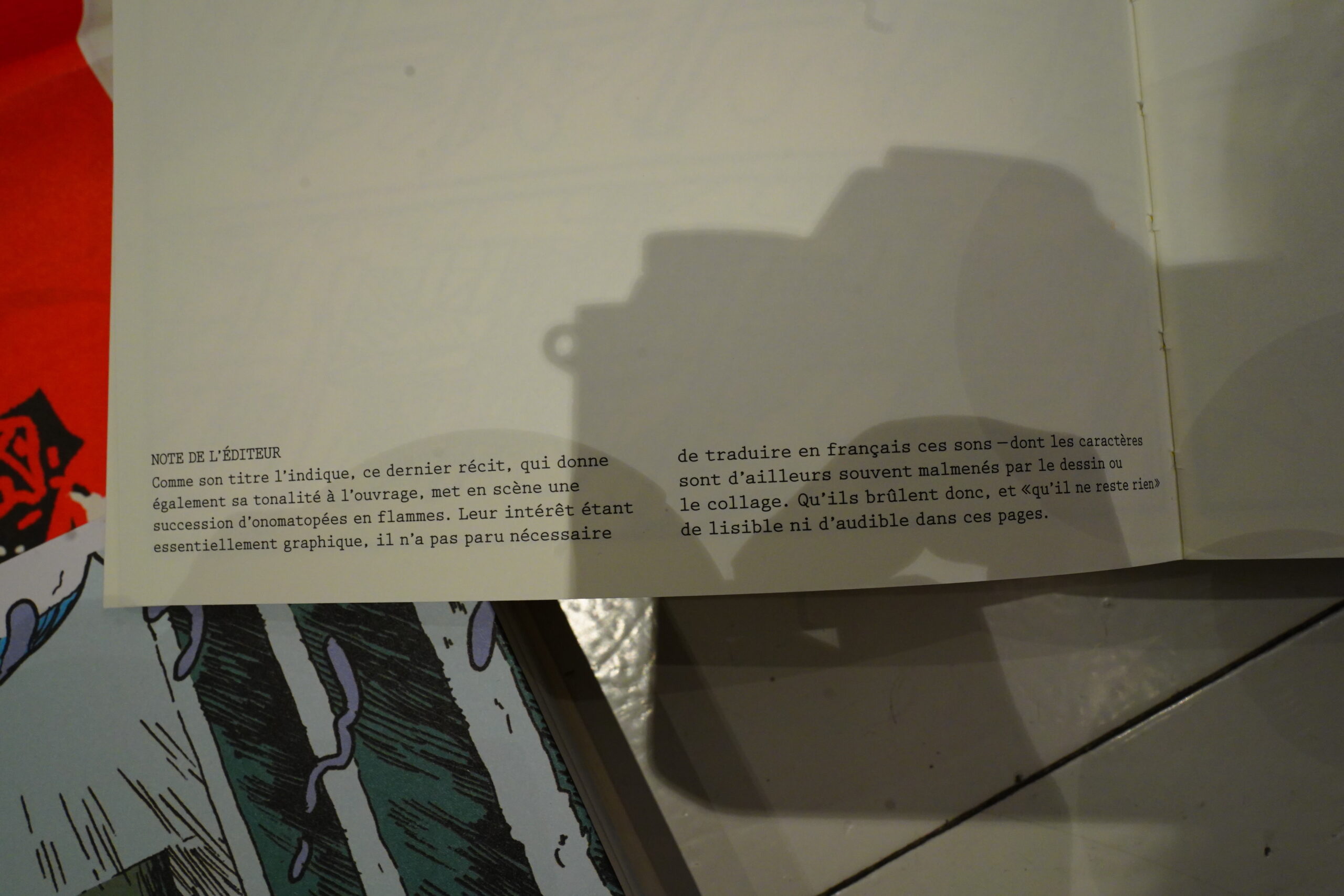
They explain that the last piece (the title piece) hasn’t been translated, because it’s not necessary — these are burning sounds.
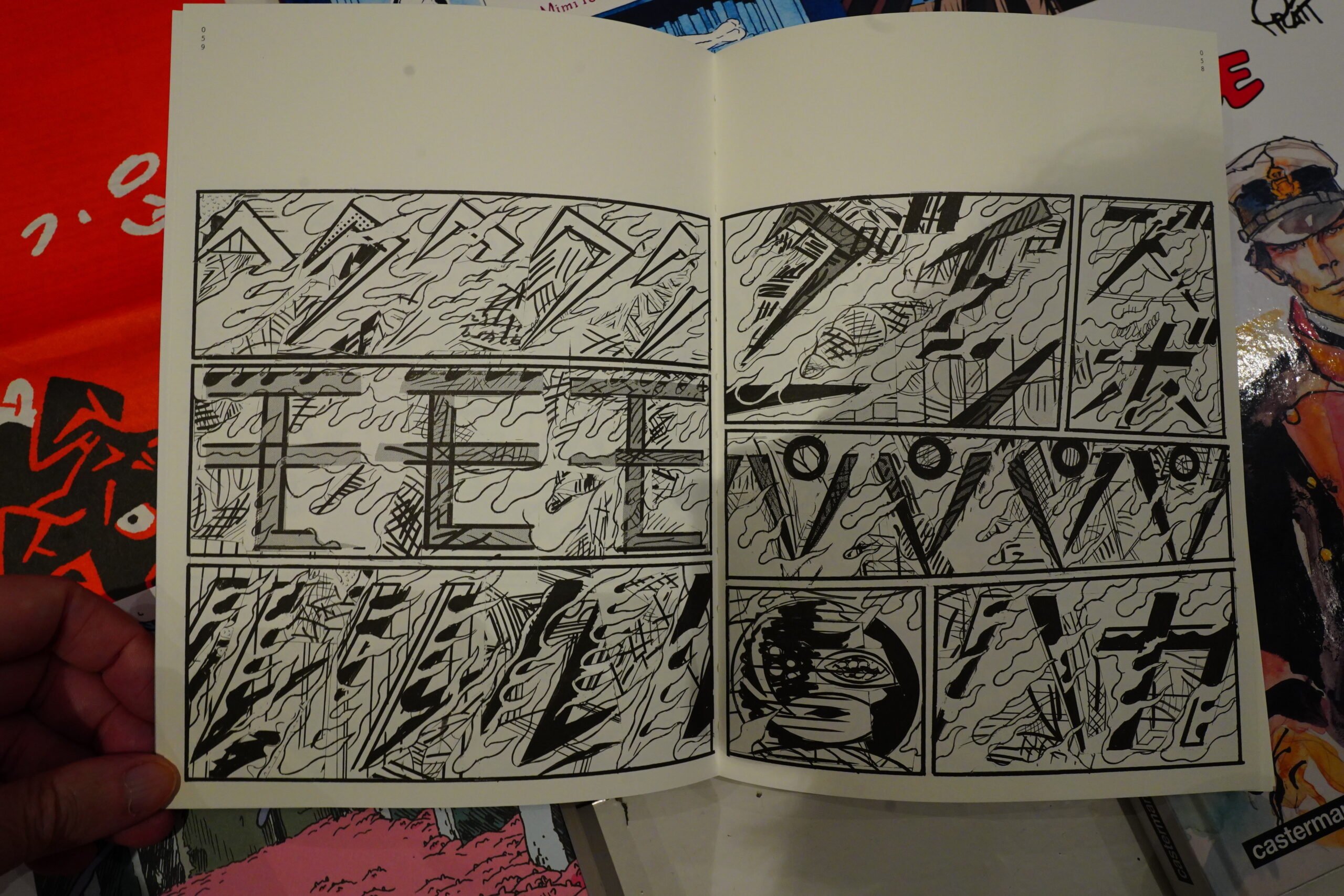
And indeed, so it is.
Ace.
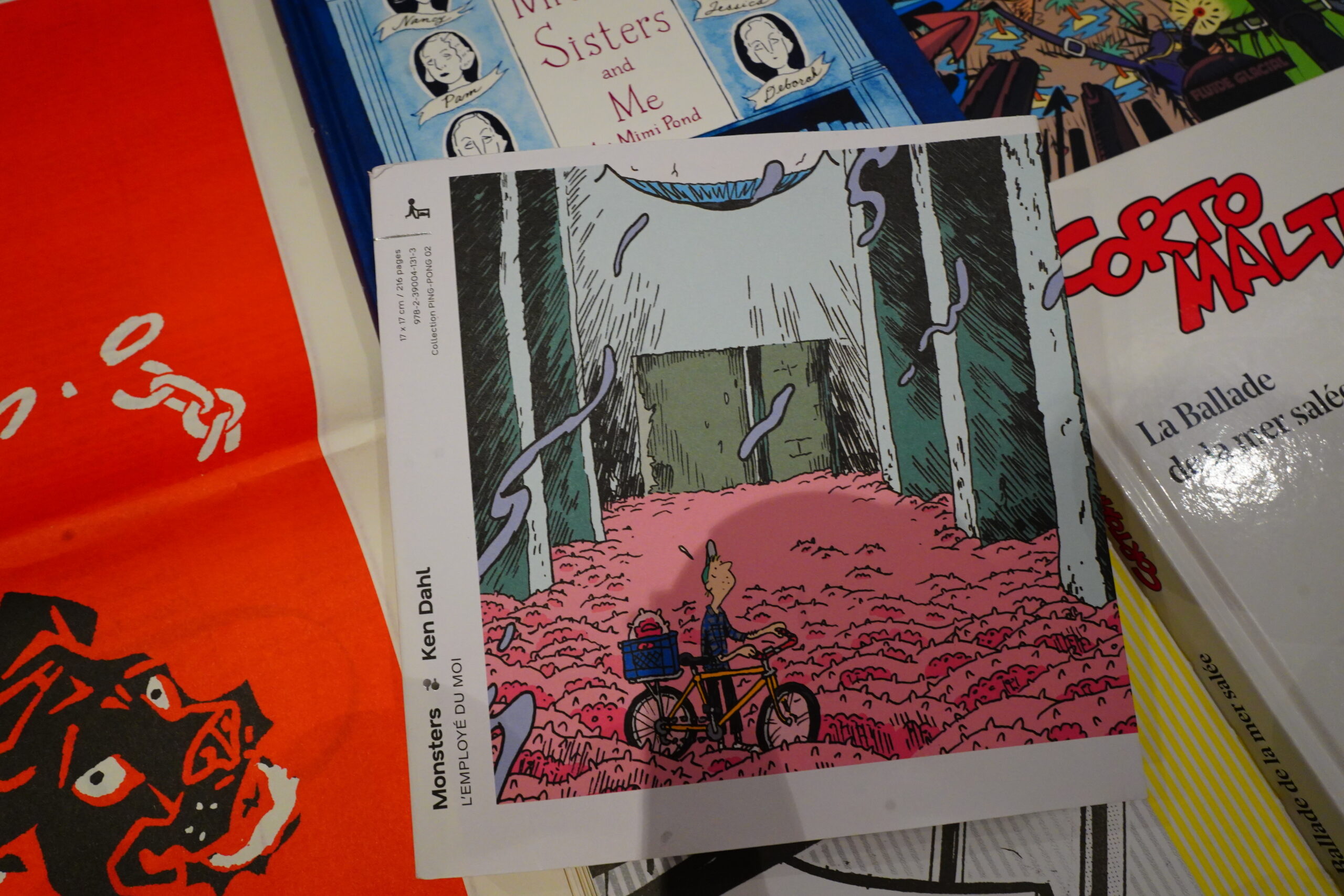
I bought this in Paris not realising that it was a translation from an American comic — Monsters was published more than a decade ago, but I hadn’t read it.
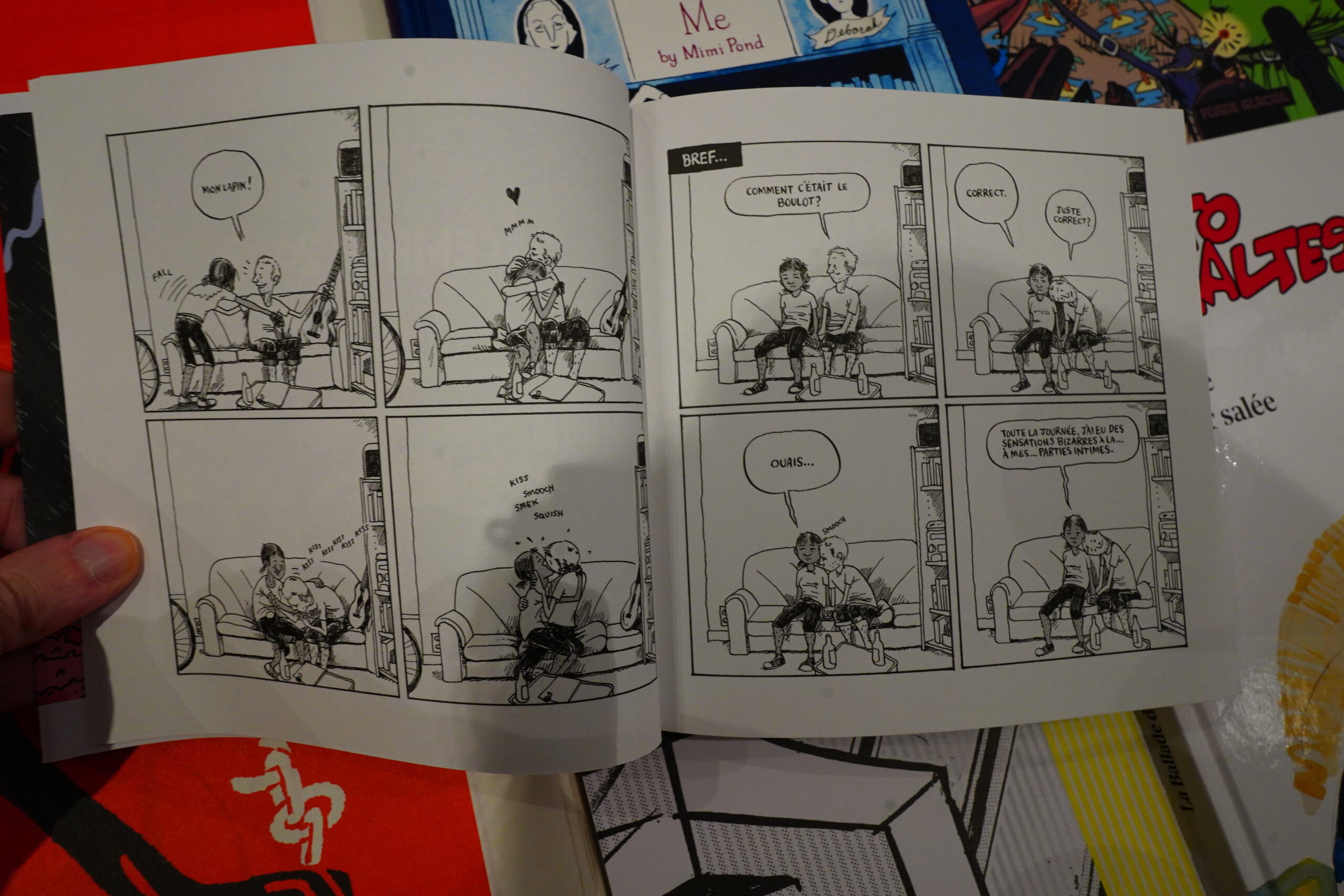
And… it’s very 90s autobio. It’s about the author having Herpes.
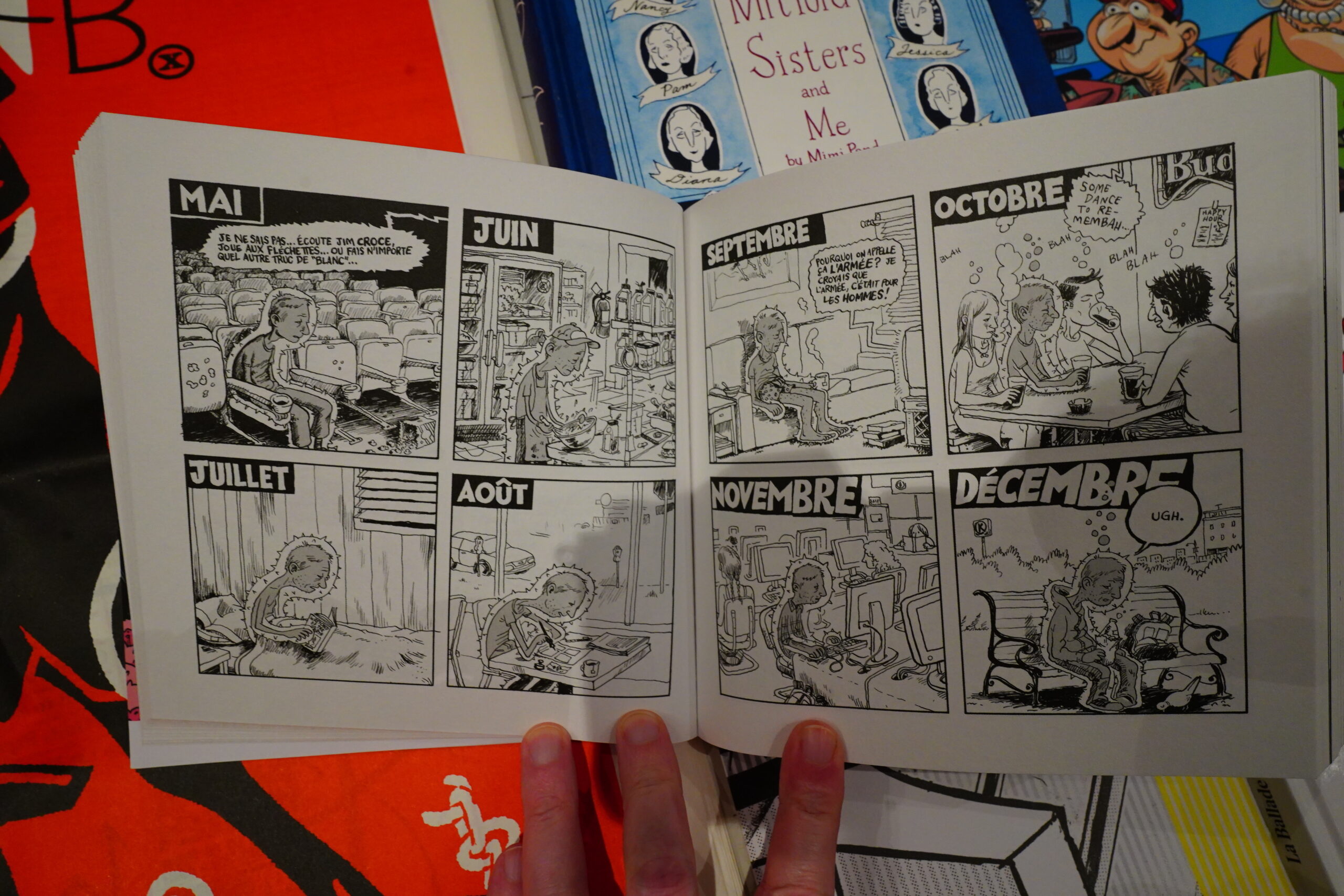
And while reading it, I was wondering whether Ken Dahl was taking the piss? It’s about the Total Angst that he has; feeling like a leper or something. But… like… everybody has Herpes, don’t they? So it was a confusing read — I was starting to wonder whether it was a satire on the form, or whether it was a metaphor for something or…
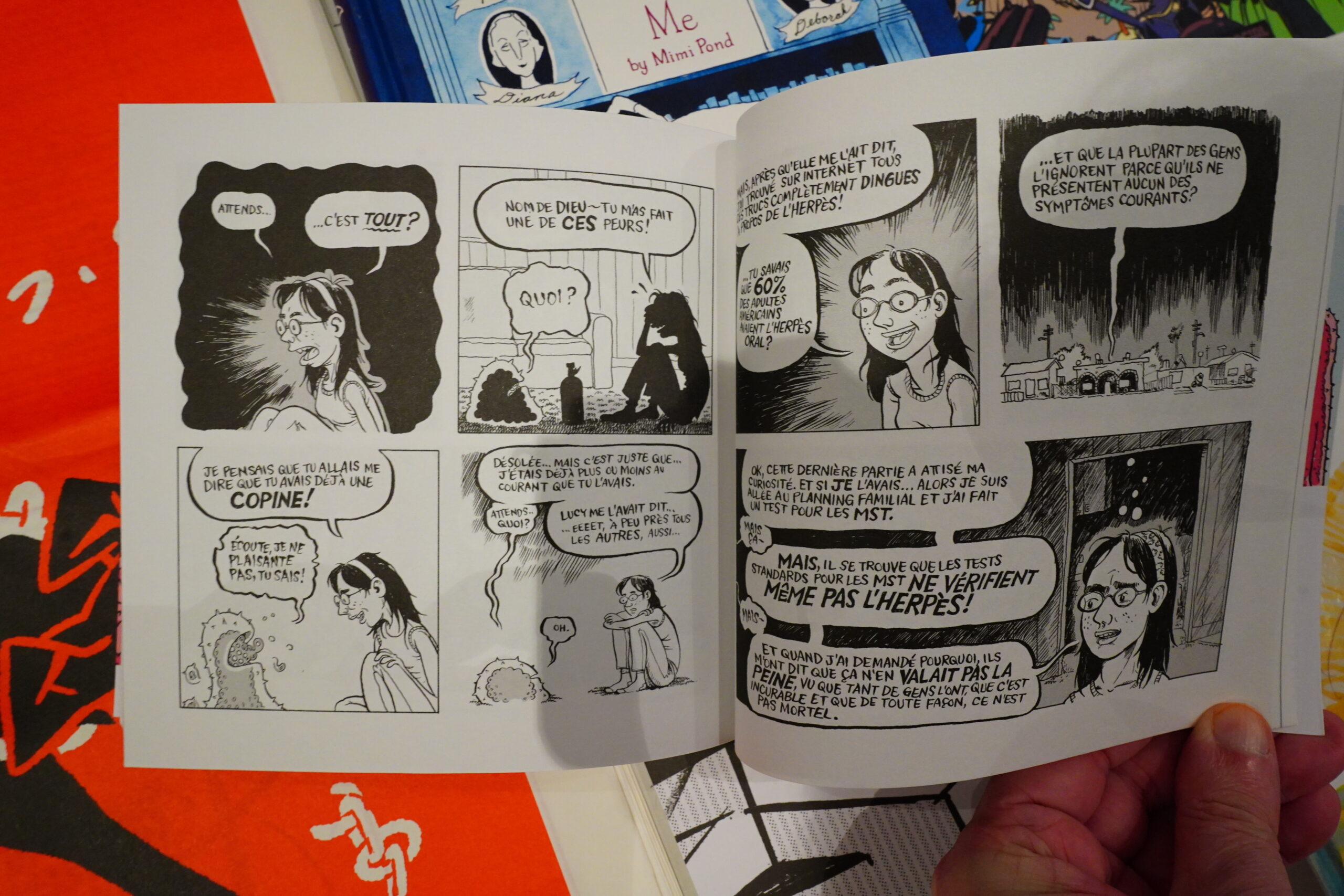
But then towards the end, his new girlfriend tells him that everybody has Herpes, so er like.
Wat.
But other than that, Dahl is a very talented artist, at least — the various horrifying Herpes sore drawings are amazing.
Reading this book was so easy for me that I started wondering whether I should read other comics that had been translated to French. The hardest part about reading French comics is how much slang there is in many of them, and plays on words, und so weiter. Perhaps translators use more formal French that’s easier to read? So to test my hypothesis, I next read this:
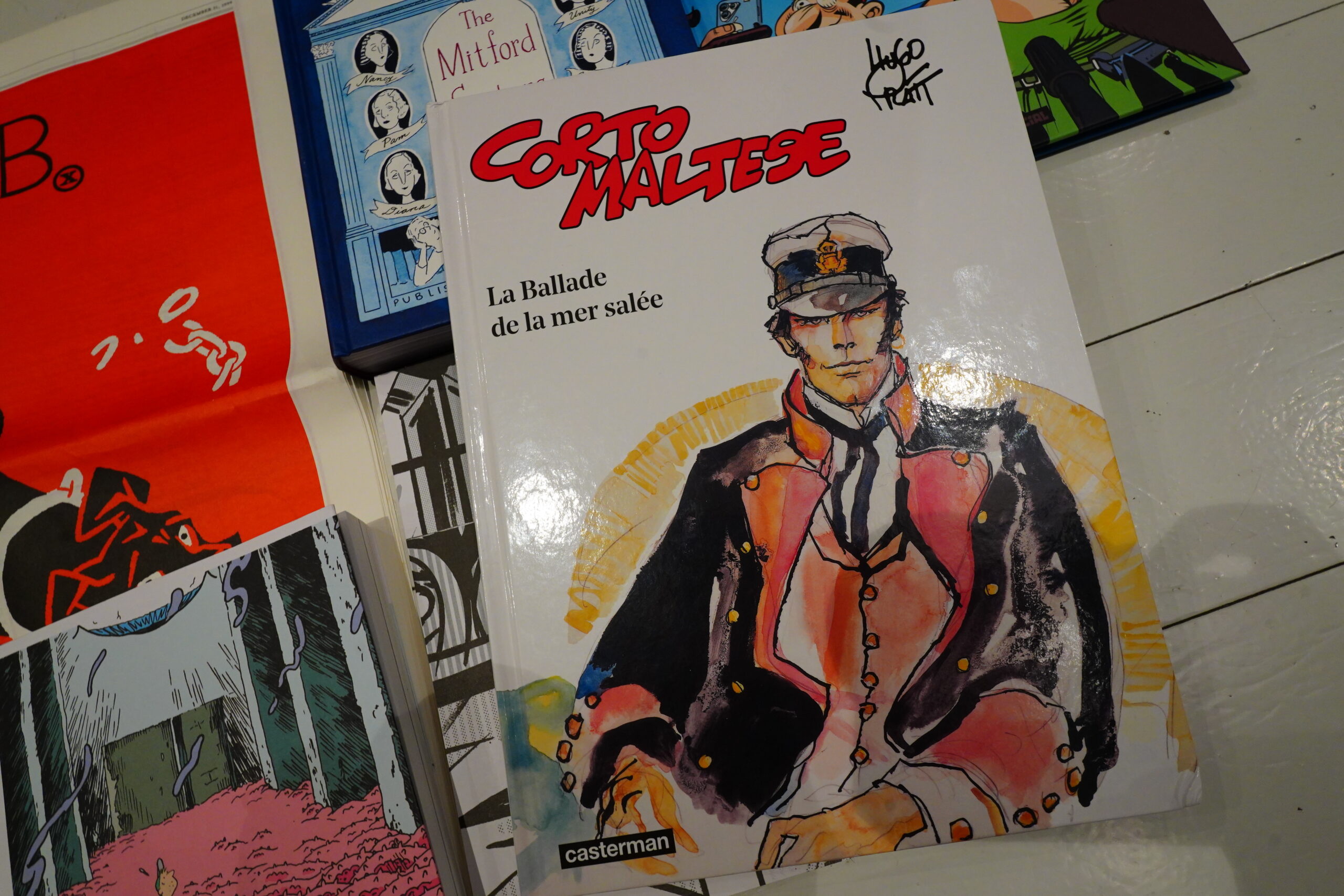
The first Corto Maltese book. It was originally written in Italian, so…
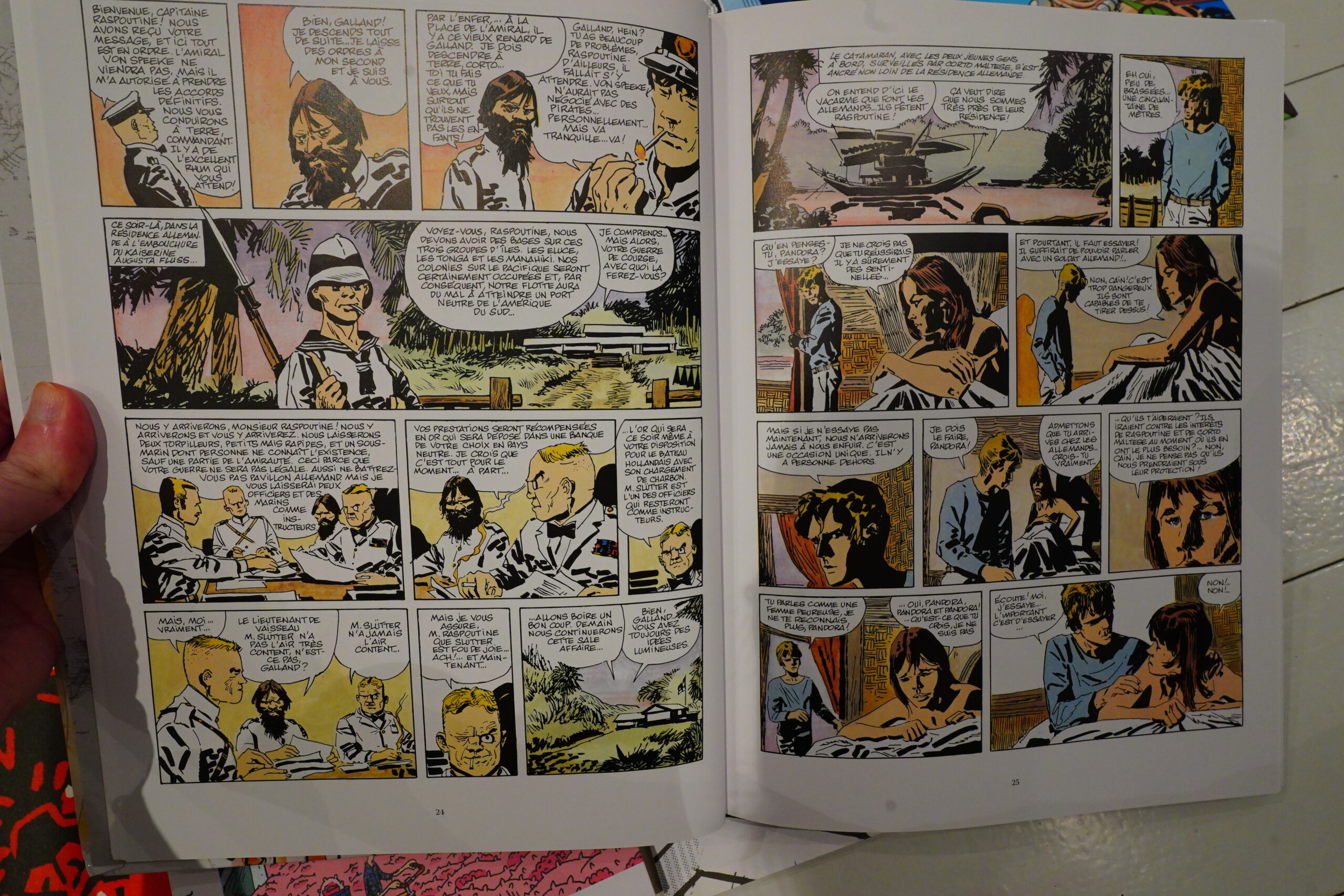
And indeed! I can read most of these pages without help from Google Translate! It’s a pretty wordy adventure, though, so it took me some days to get through it… my brain shuts down after reading French for more than an hour.
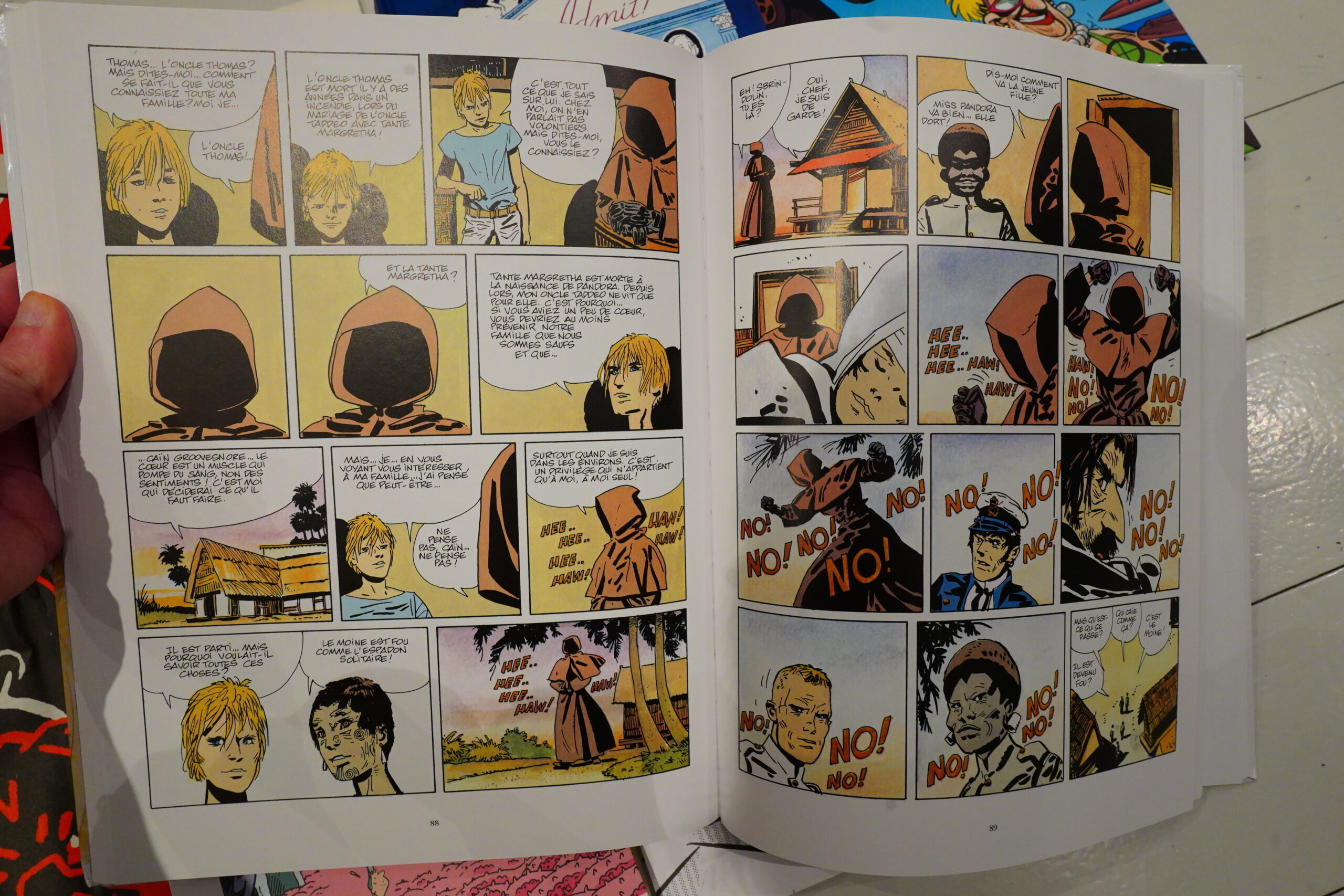
I’ve read this many times before in various translations, of course, but this is the first time I’ve read a version in colour. And the colouring is sensitive and well done, but I still prefer the original black and white.
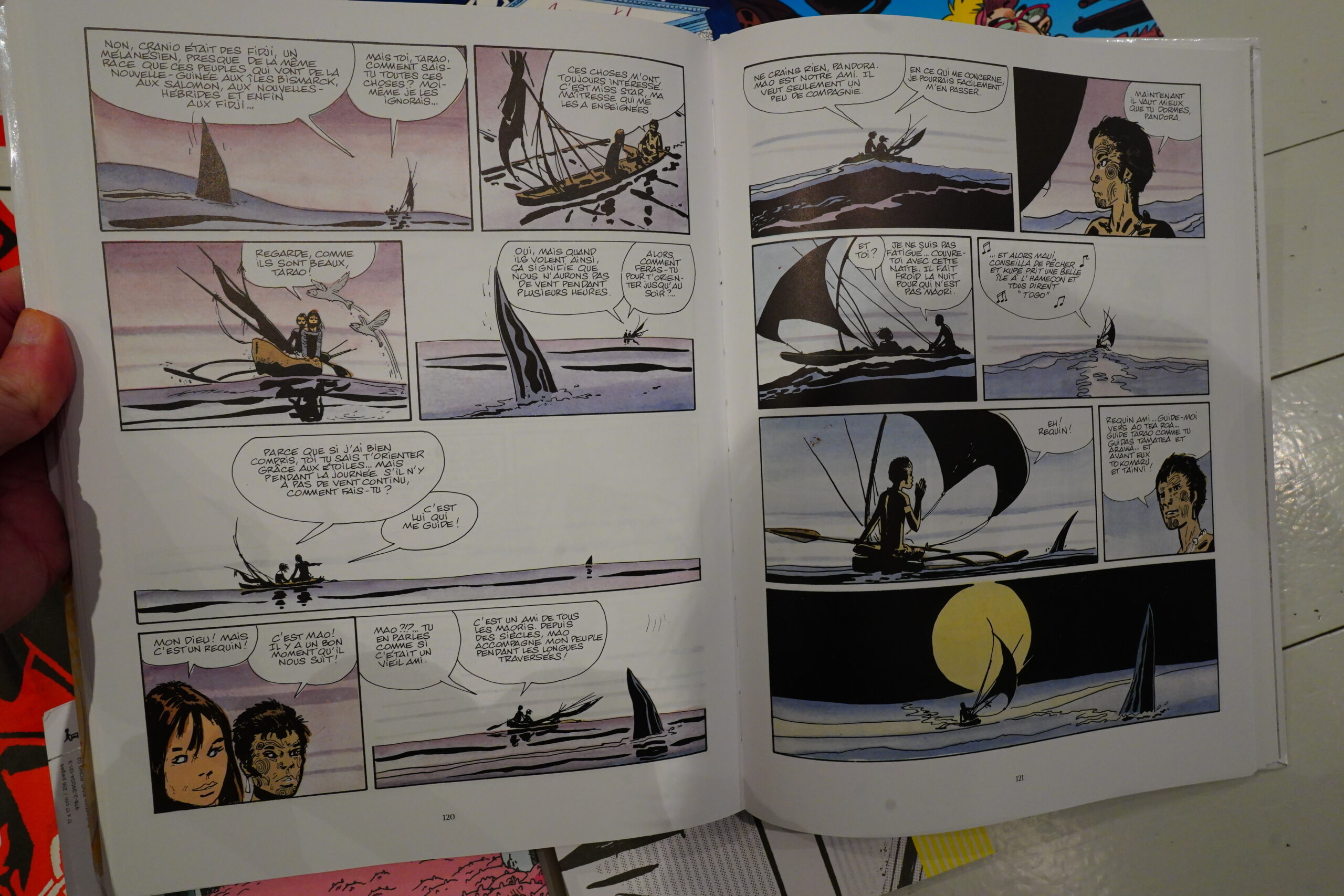
It’s a lovely book — it’s the longest of the Corto Maltese albums, I think? And definitely not the best, but it’s still fantastic.

I got this from here.
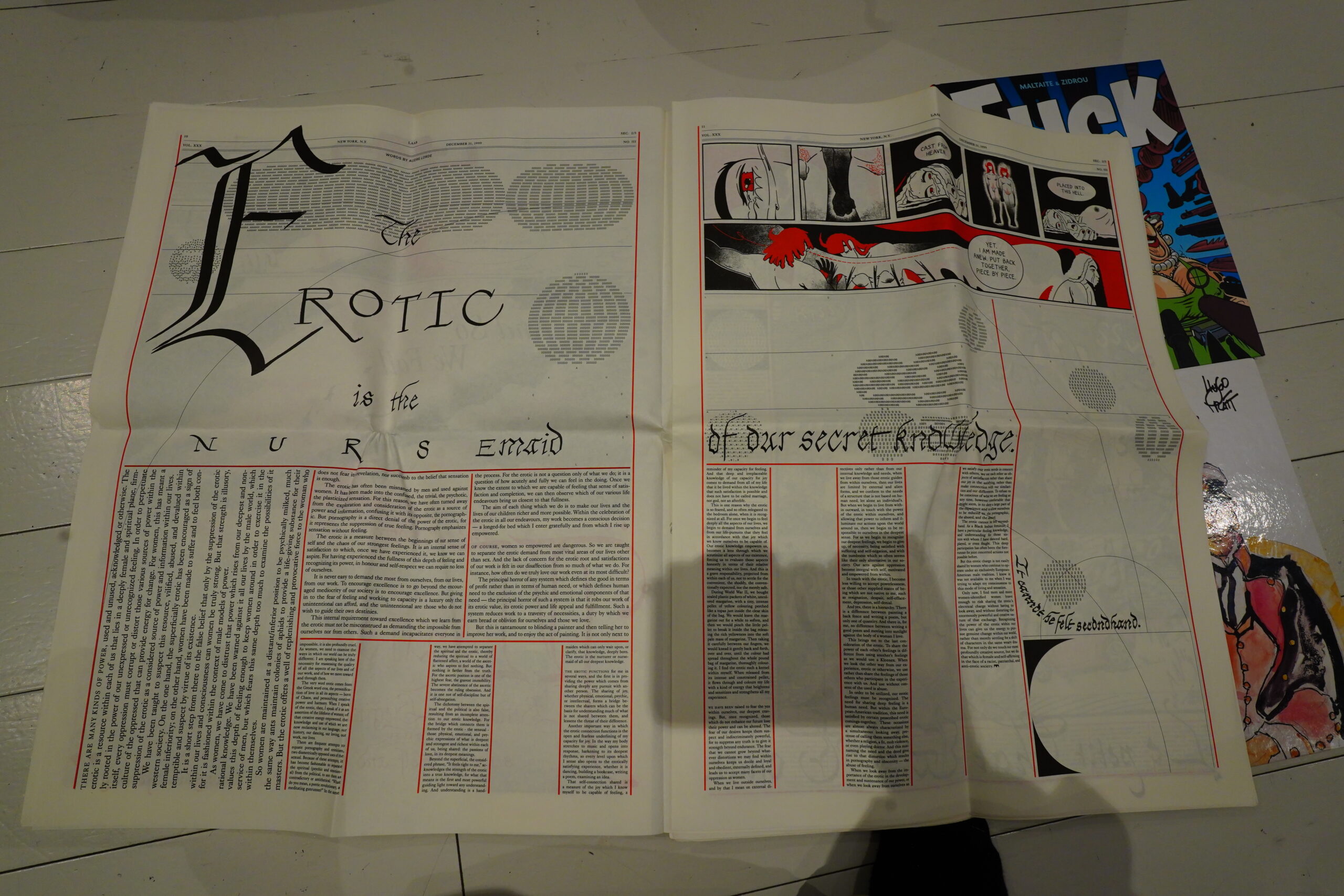
It’s a huge newspaperish thing…

… with some comics, but like… eh. I wasn’t very taken with it.

I guess many things are sourced from “found items”? And there’s a long discussion with ChatGPT, and friends don’t make friends read LLM-generated text… but the thing seems to go out of its way to make things hard on the reader — printing things upside down, chopped up, and whatever — and while that can work, you have to instil a confidence in the reader that it’s going to be worth the work. And I had no such belief at all, so I started skipping toot de suite.

I had some problems with The Customer Is Always Wrong by Mimi Pond some years ago — I found it to be a pretty messy read.

This biography of the Mitford Sisters has the opposite problem — it reads without any resistance at all. It’s like listening to a voice-over on a documentary while images flutter endlessly to keep the viewer engaged.
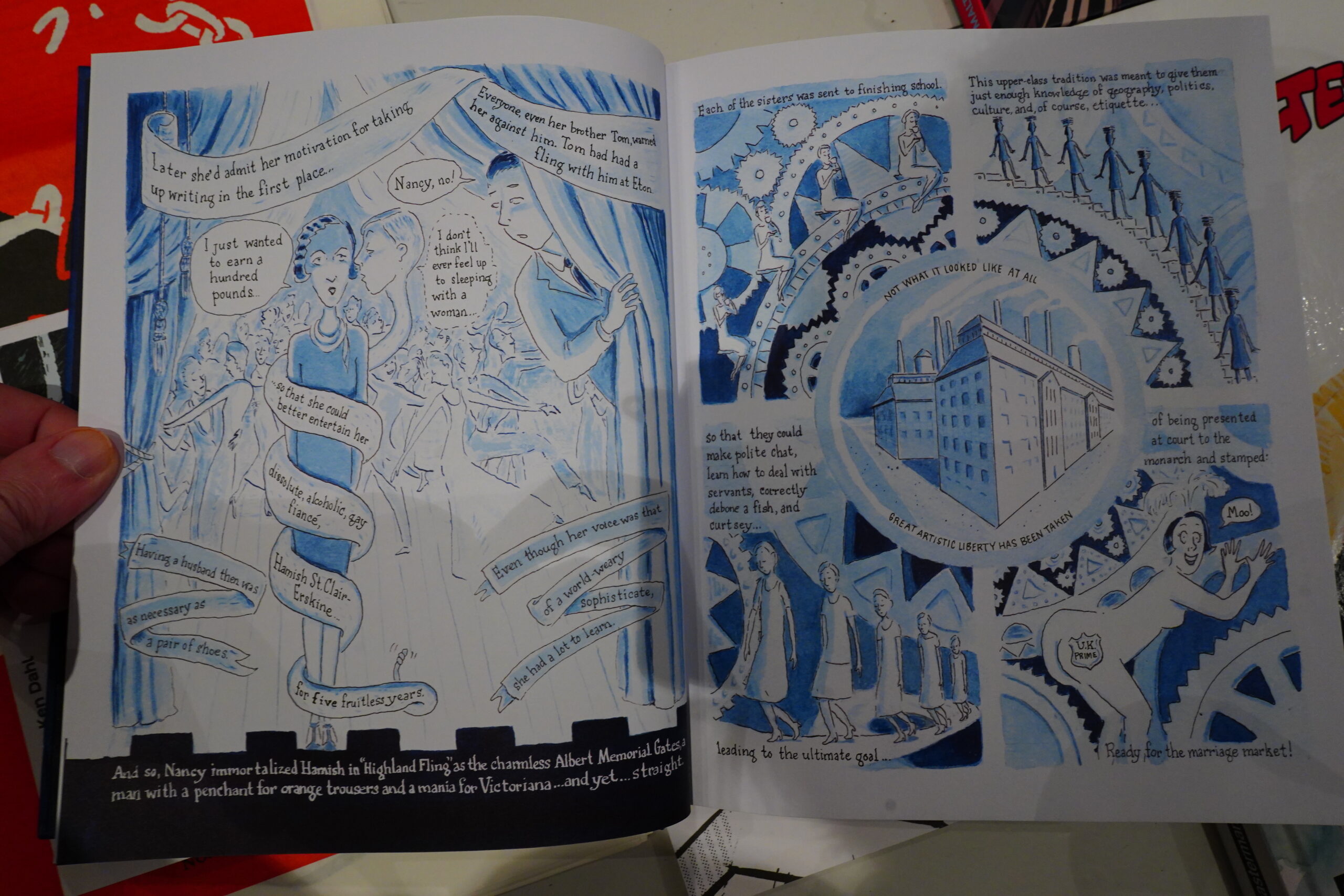
And I do like the artwork, but I absolutely loathe that genre. And I have no interest in these Mitford sisters, so I ditched the book after 70 pages.
I’m sure it’ll end up on everybody’s Best Of list of 2025, and I congratulate Drawn & Quarterly on another hit.
And that’s it.
